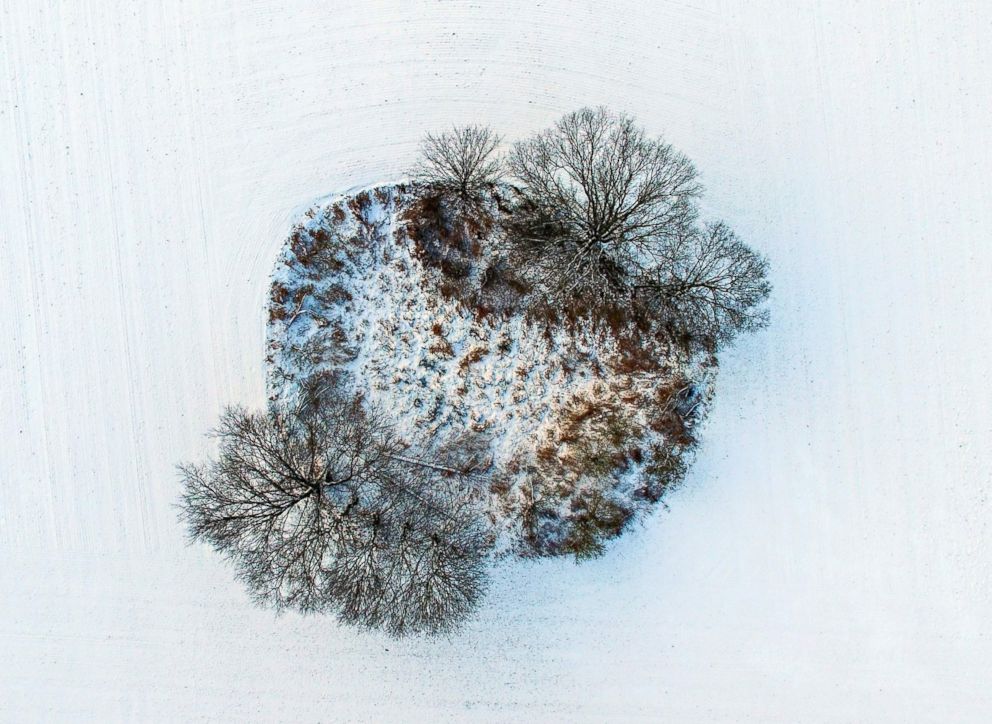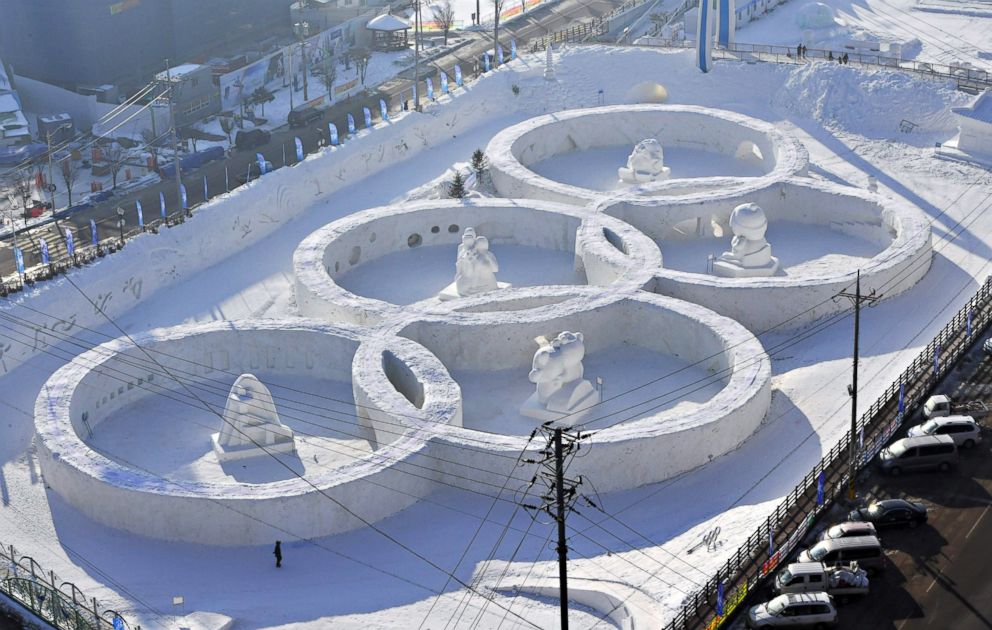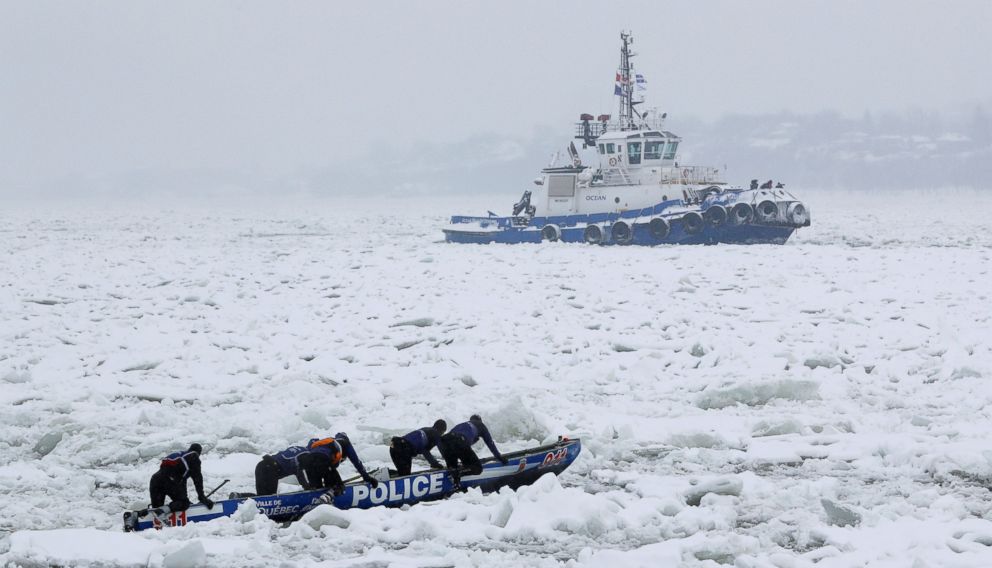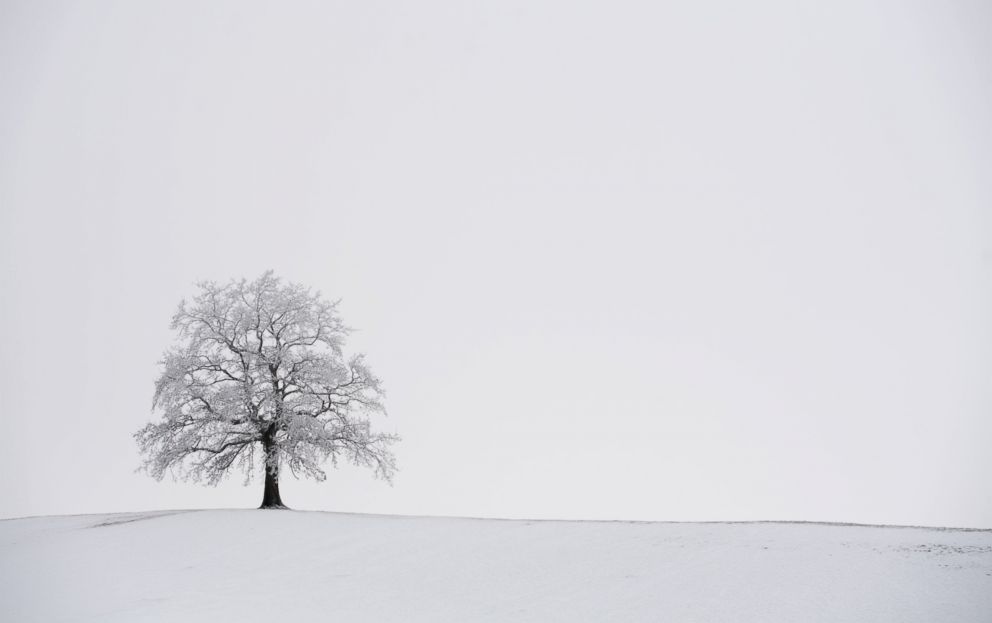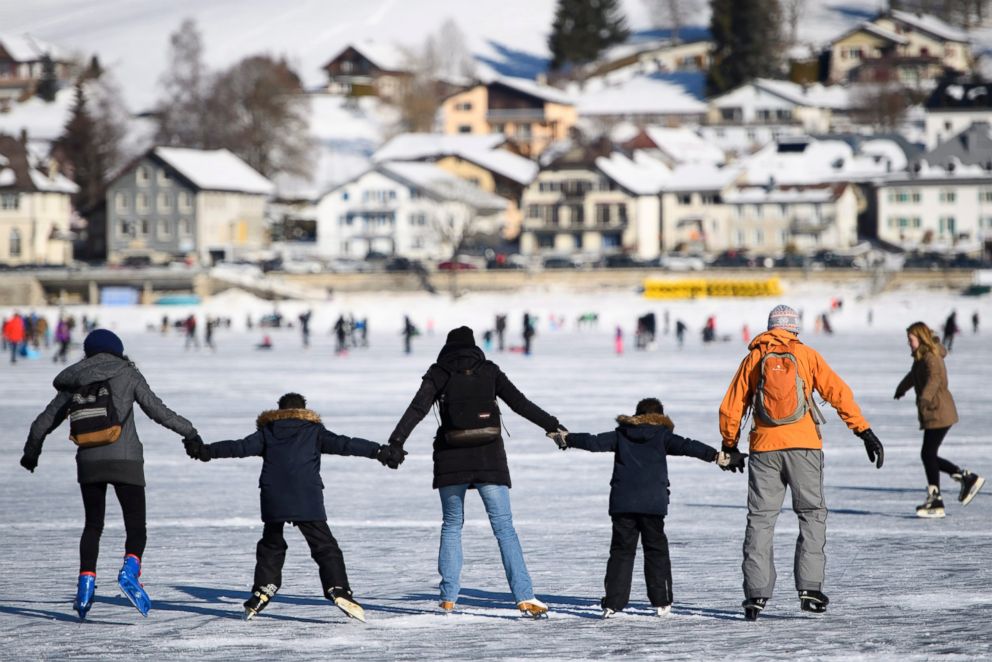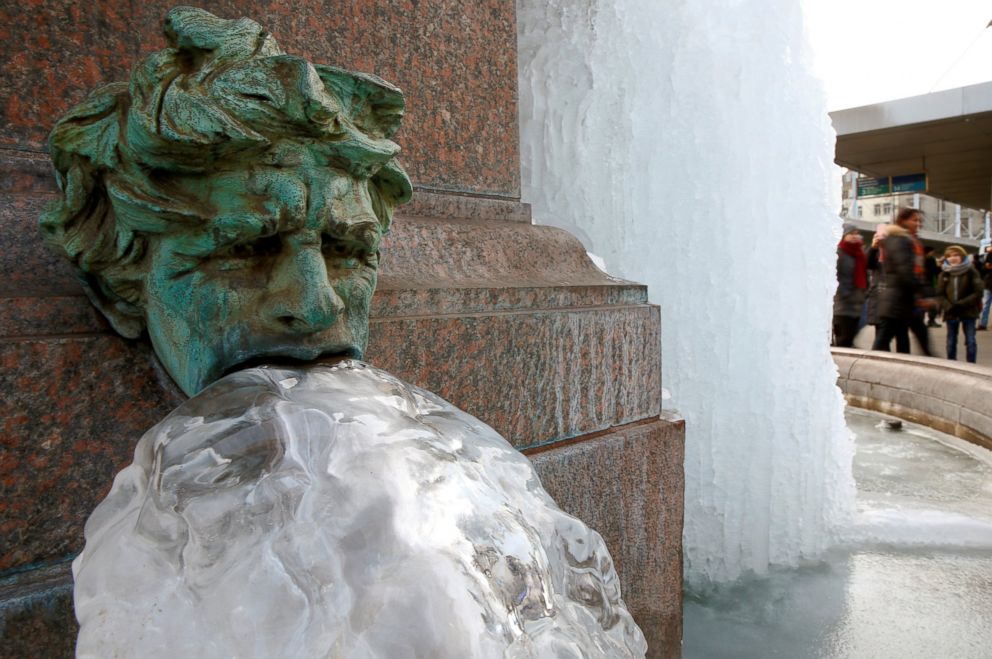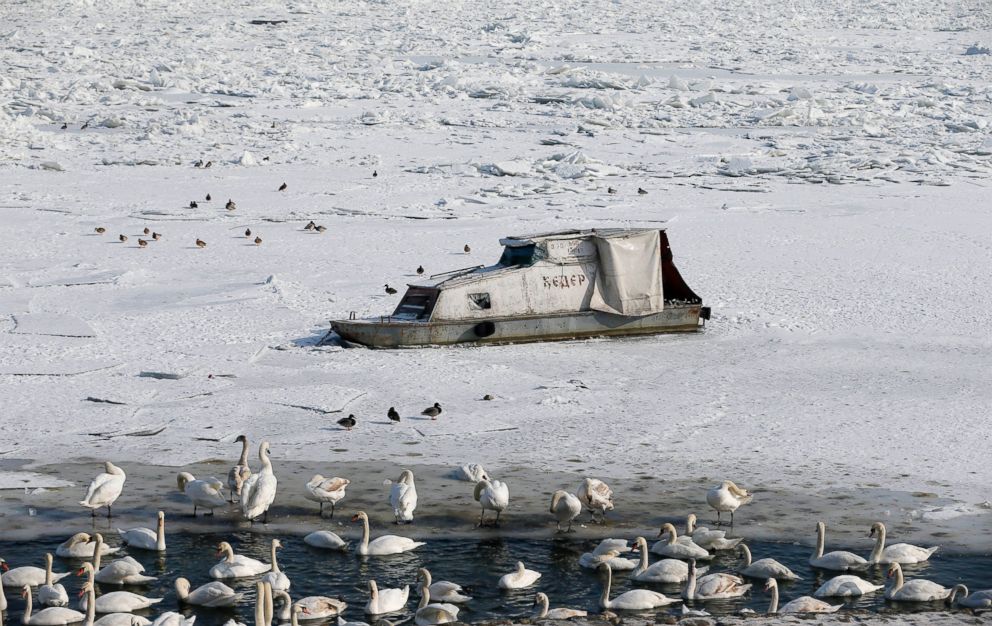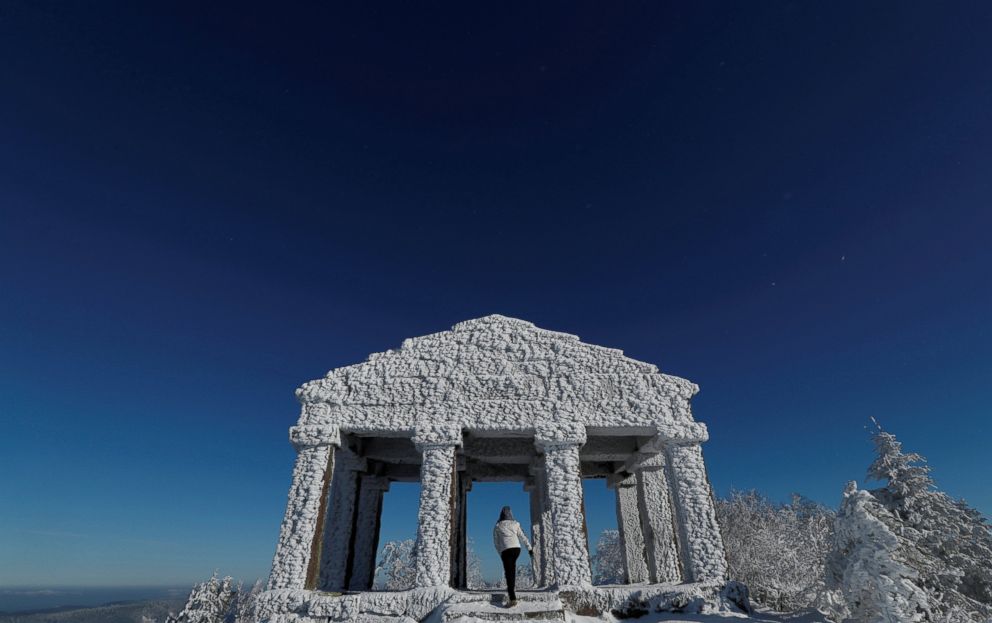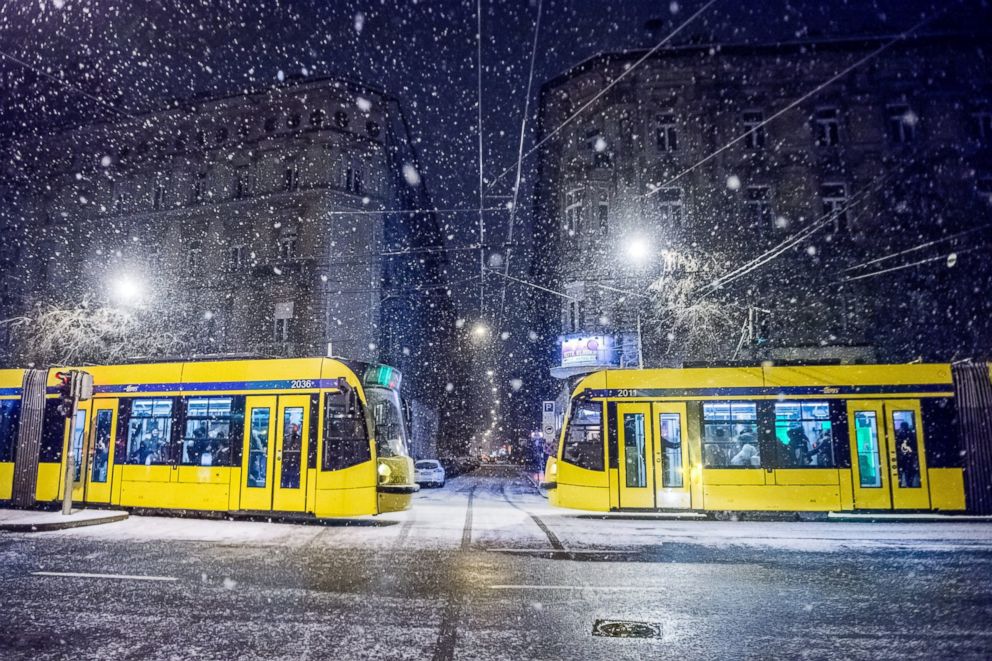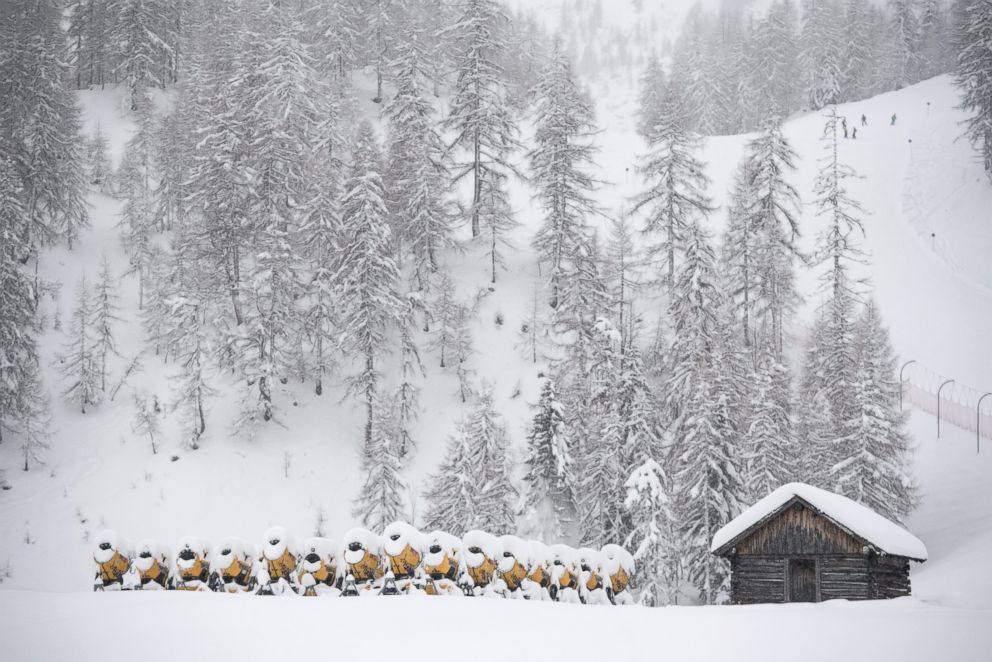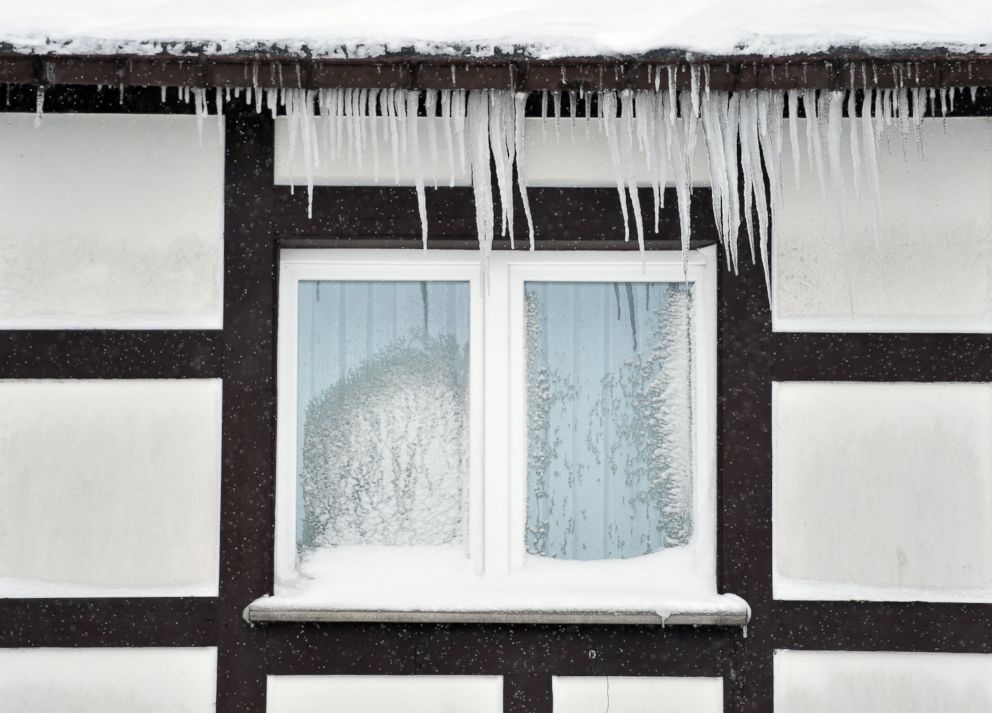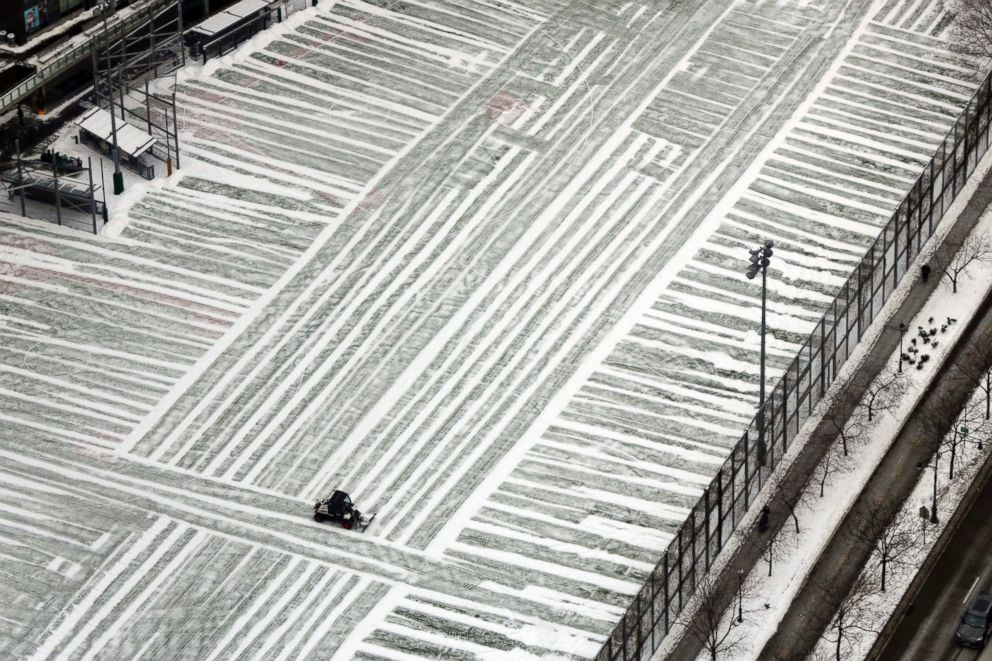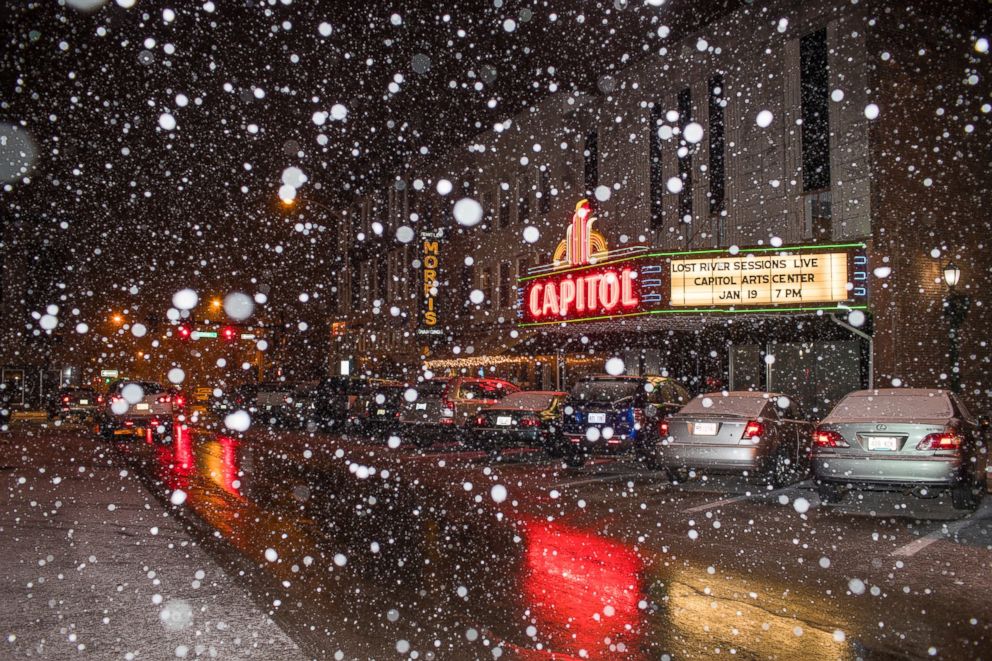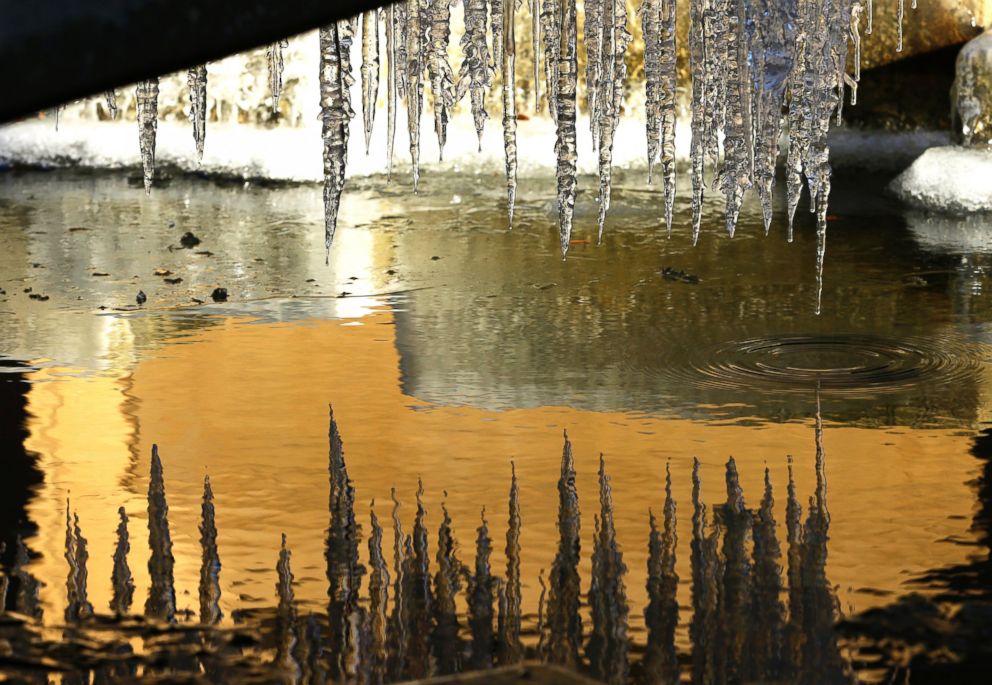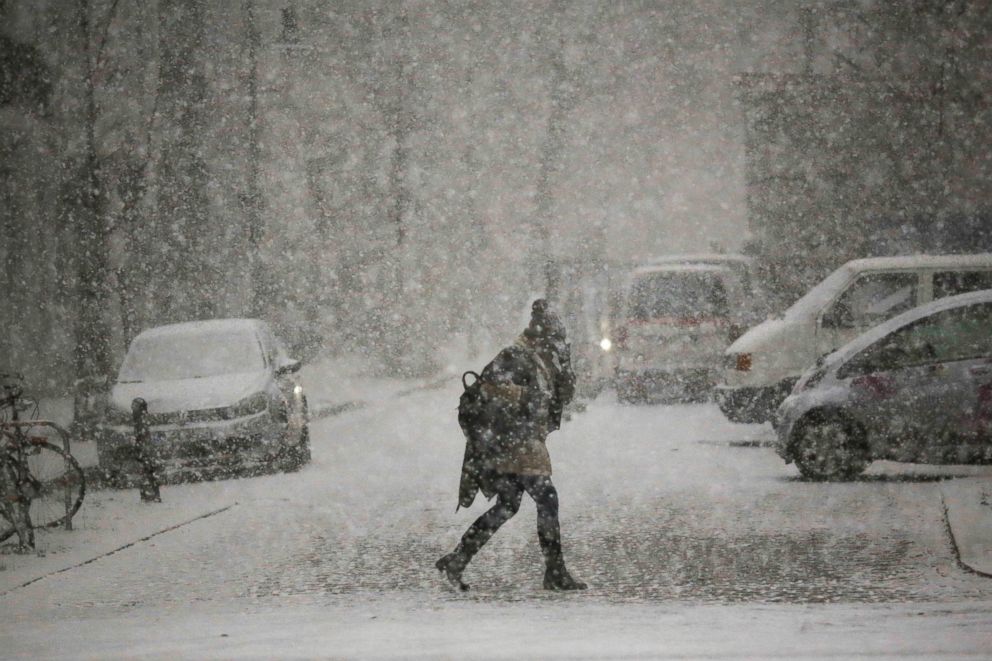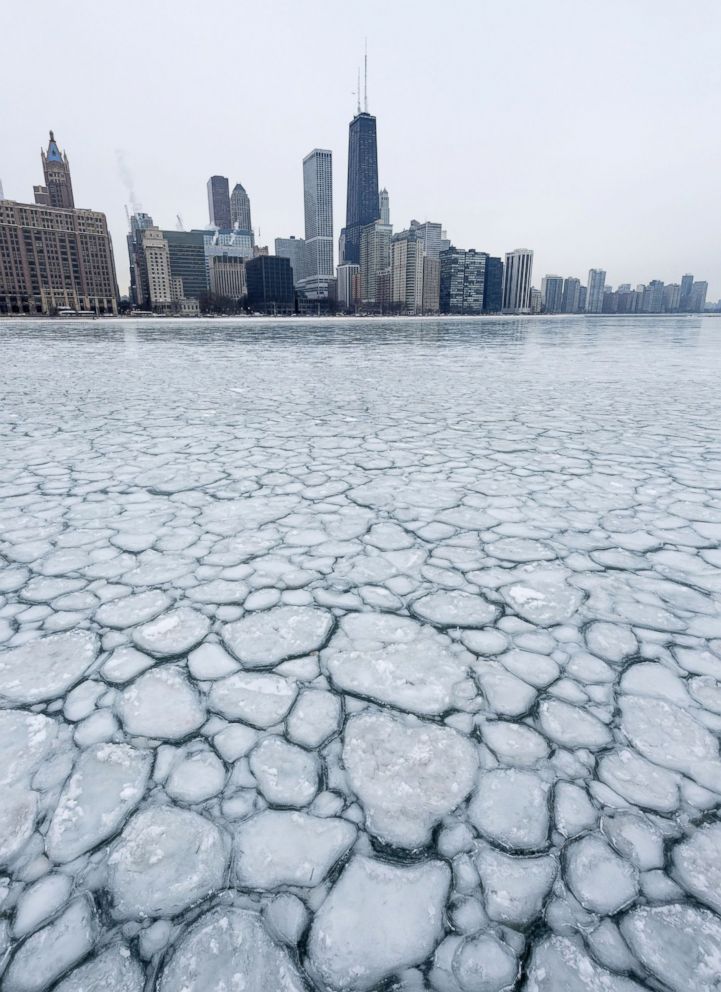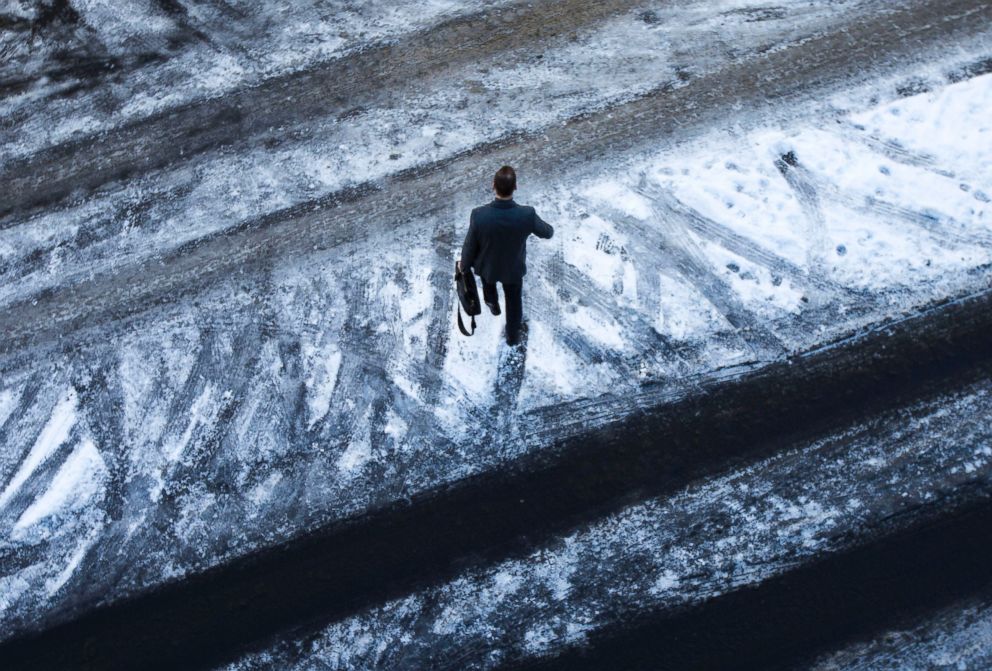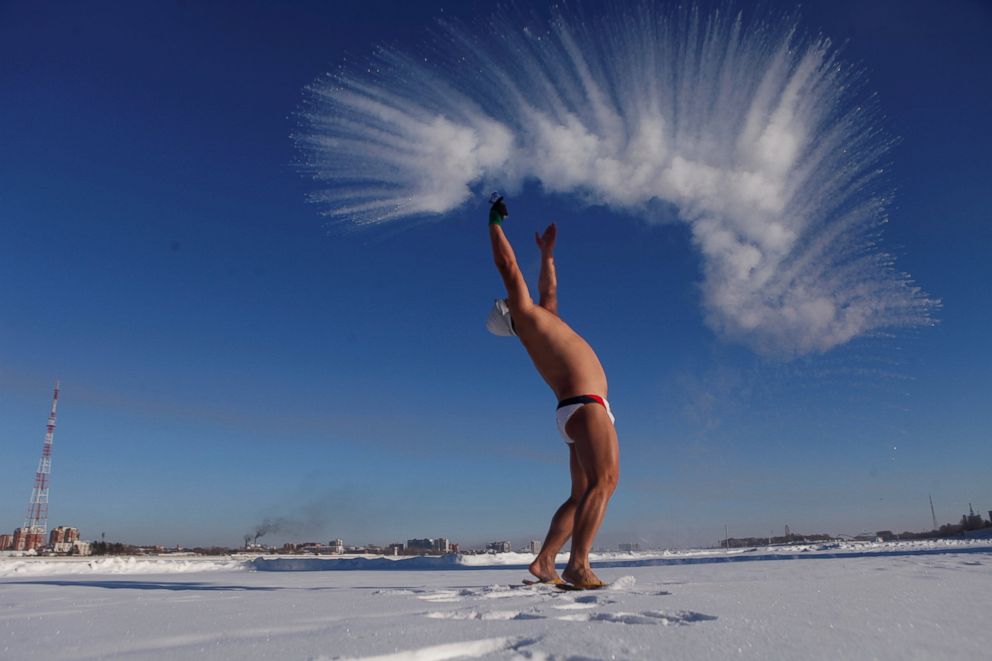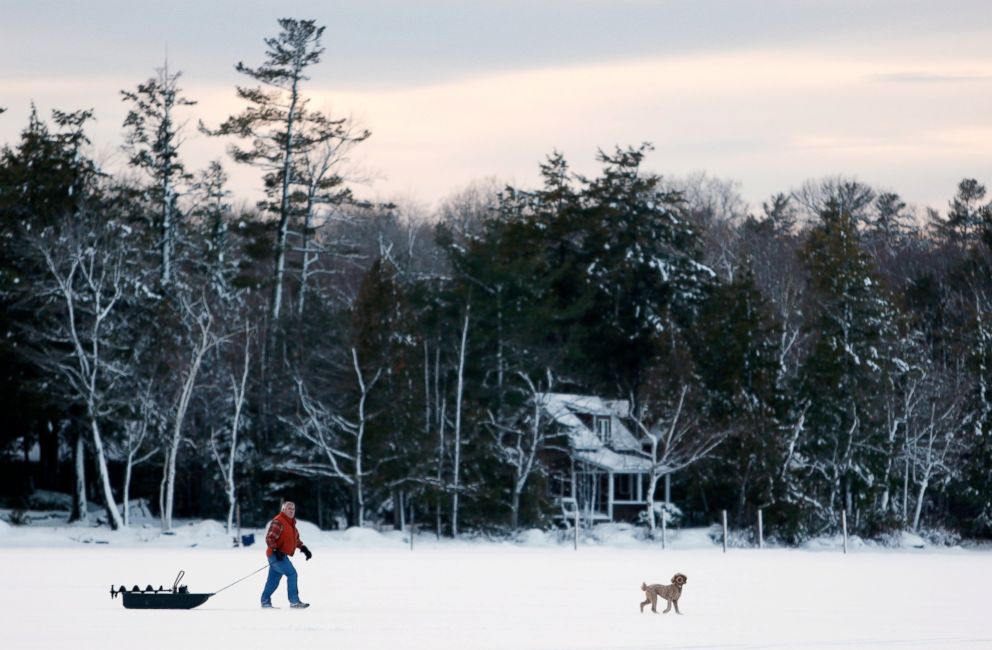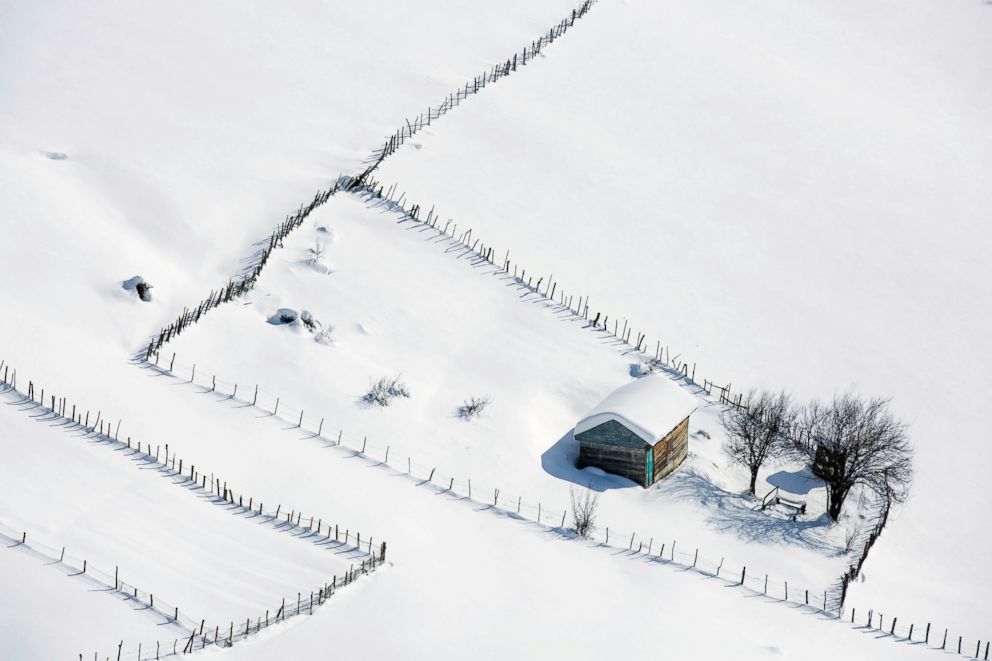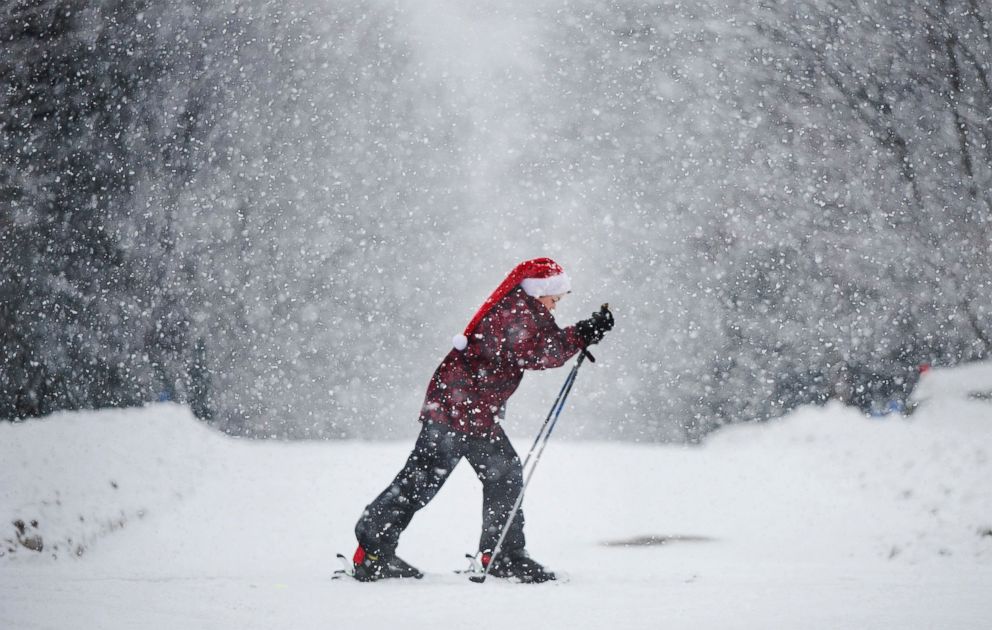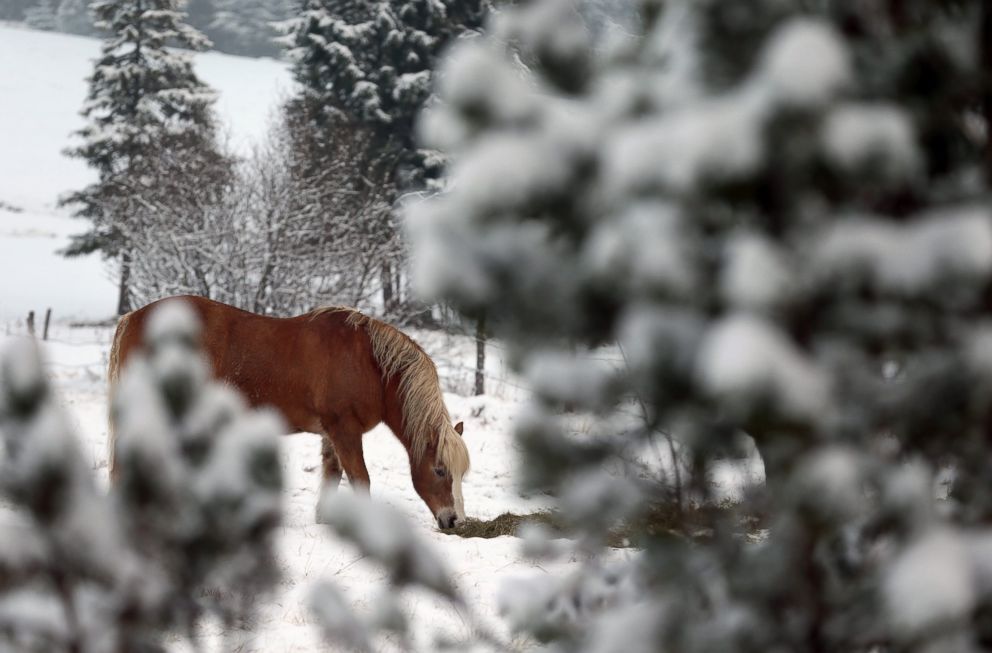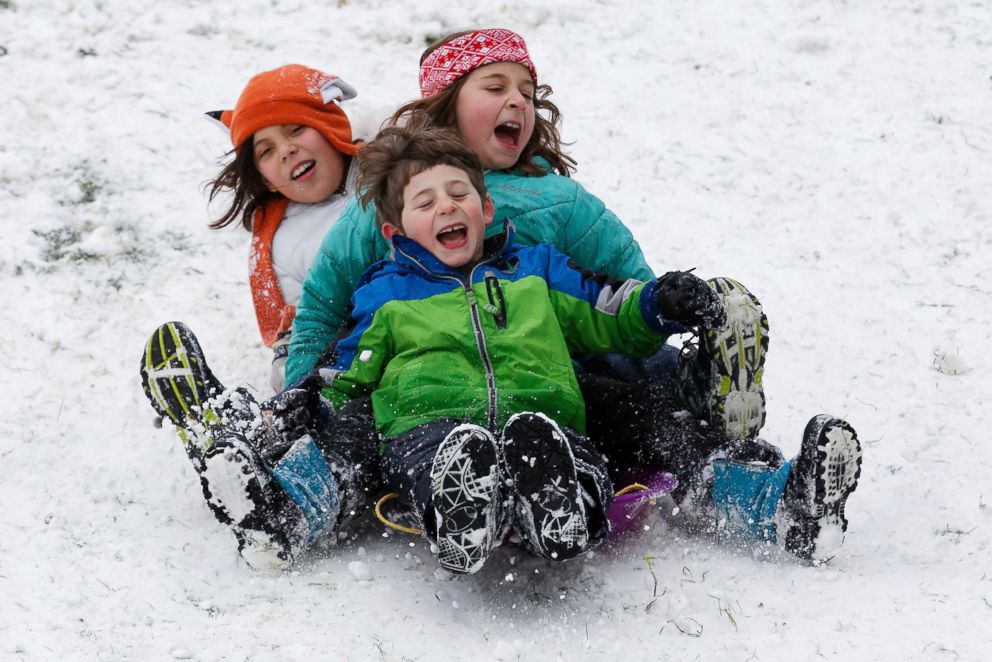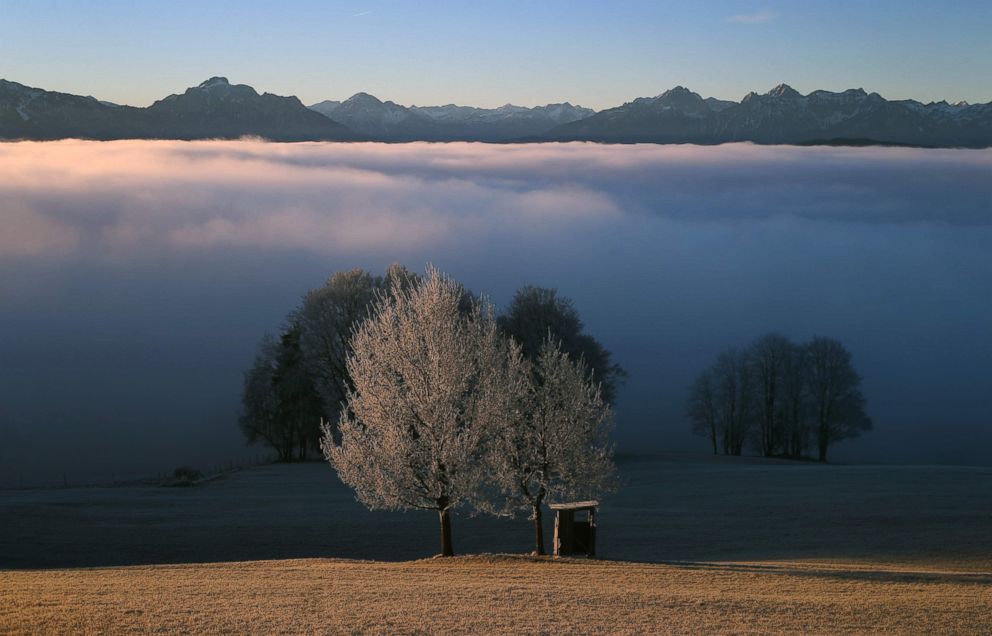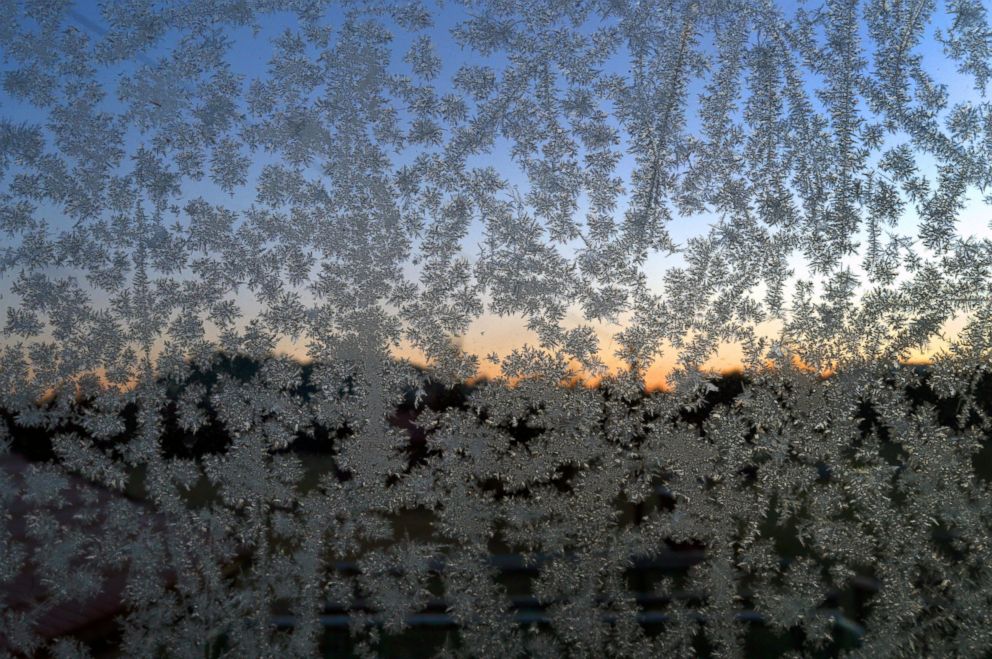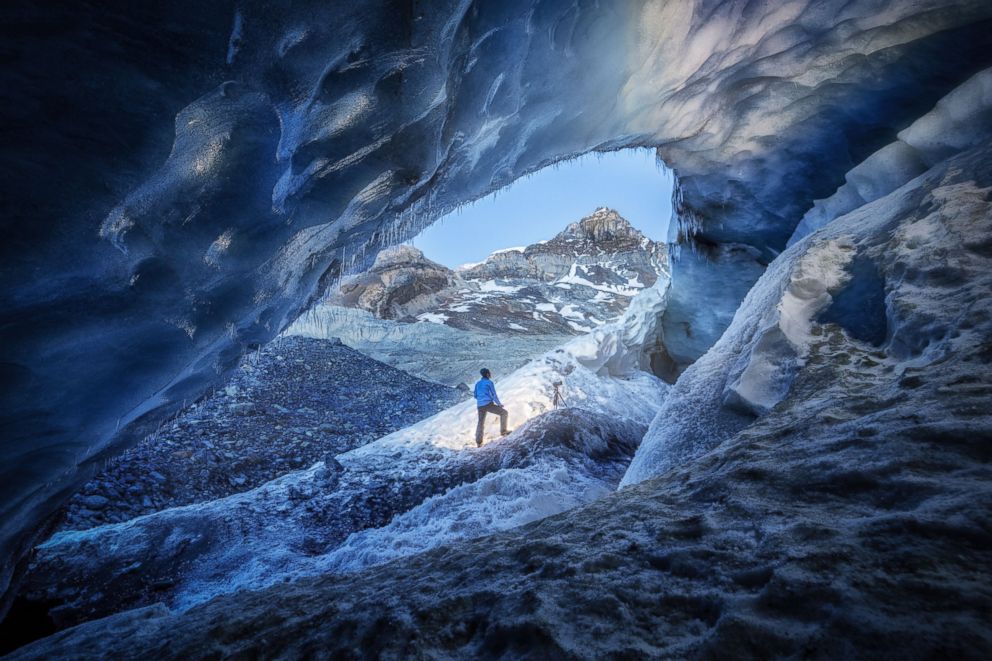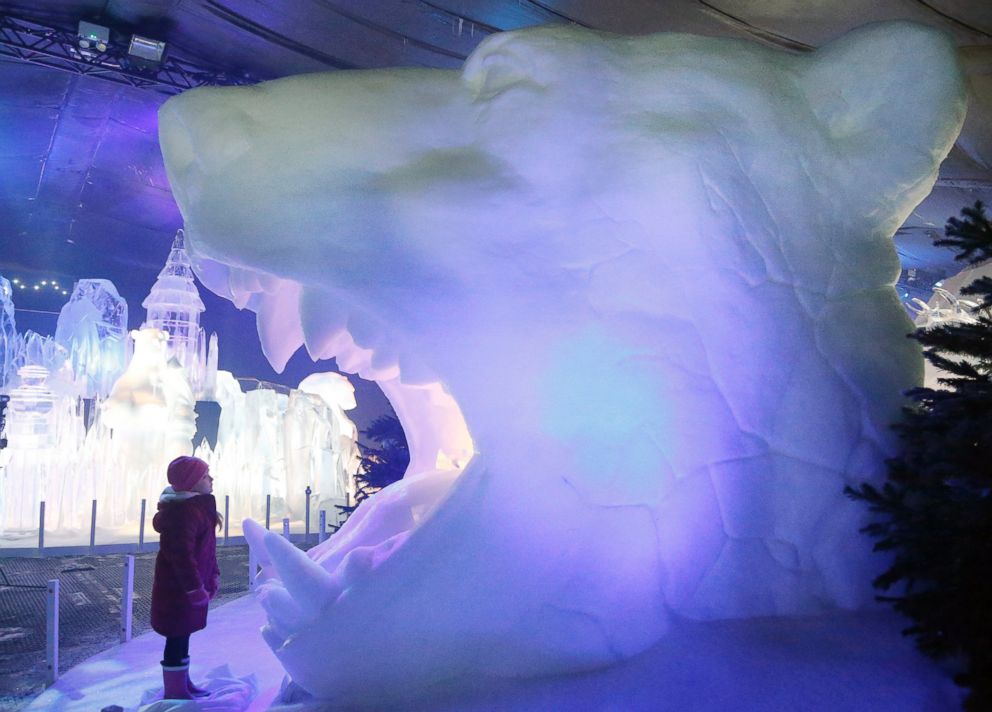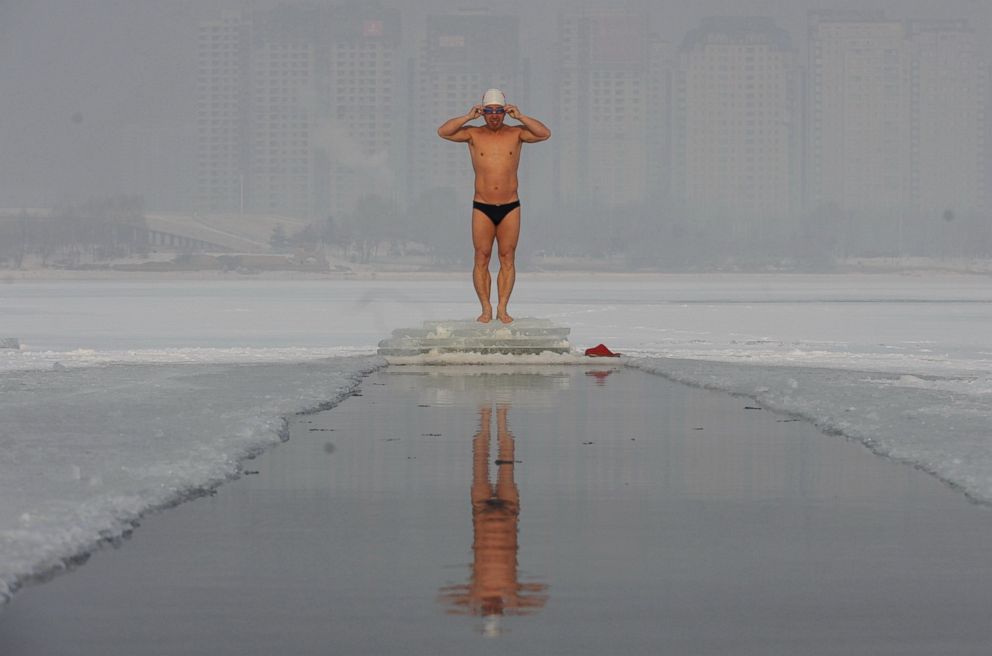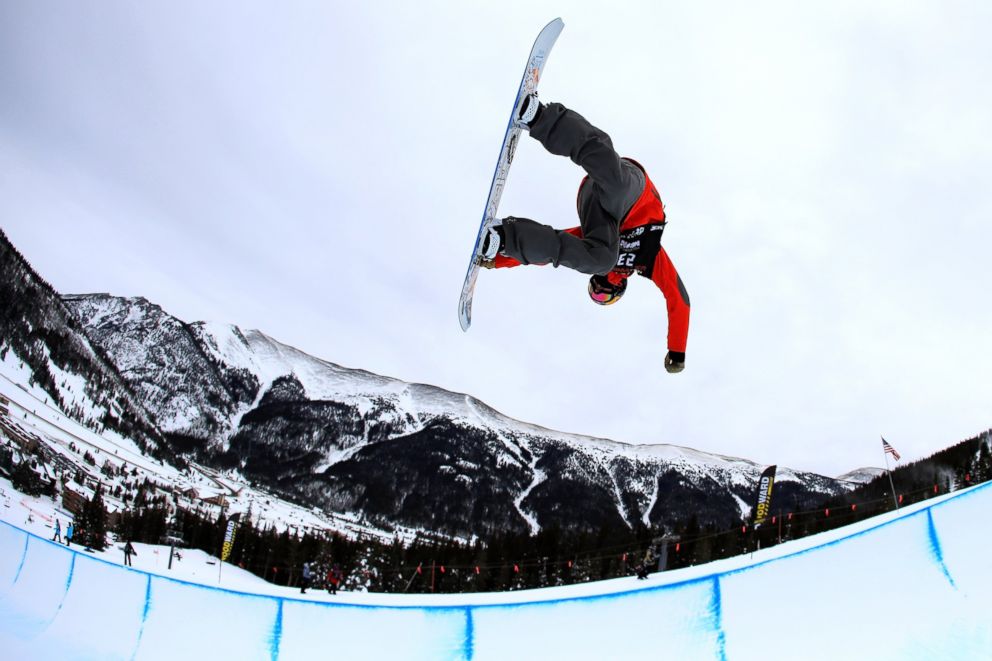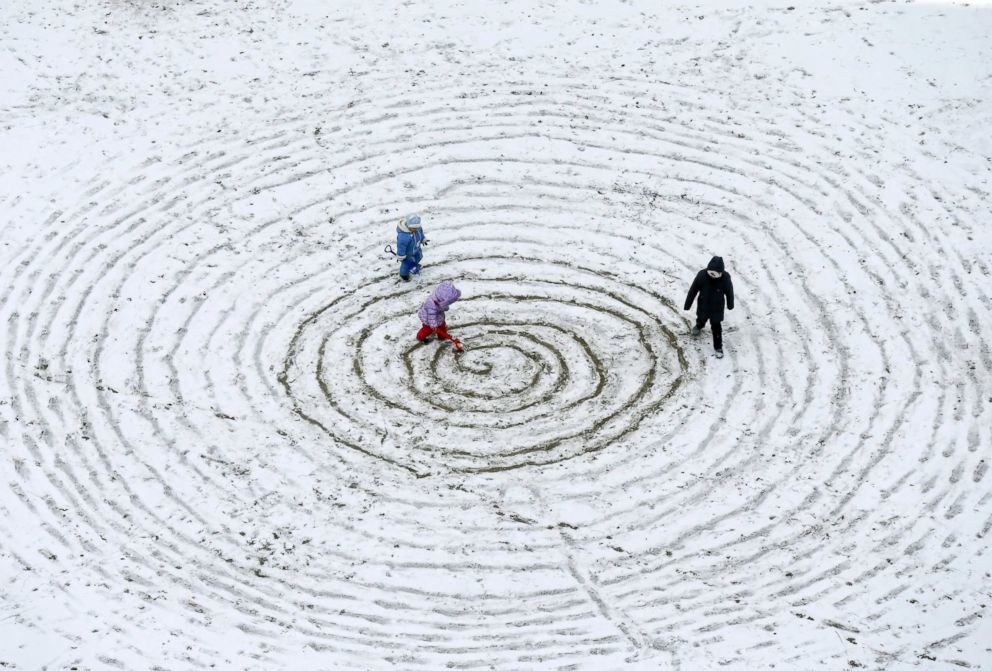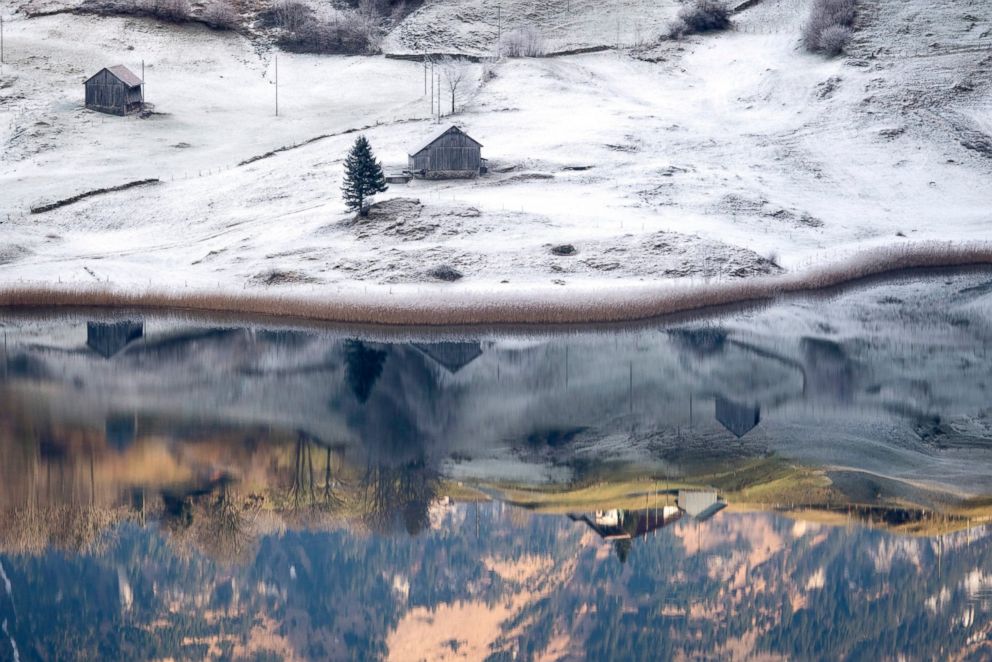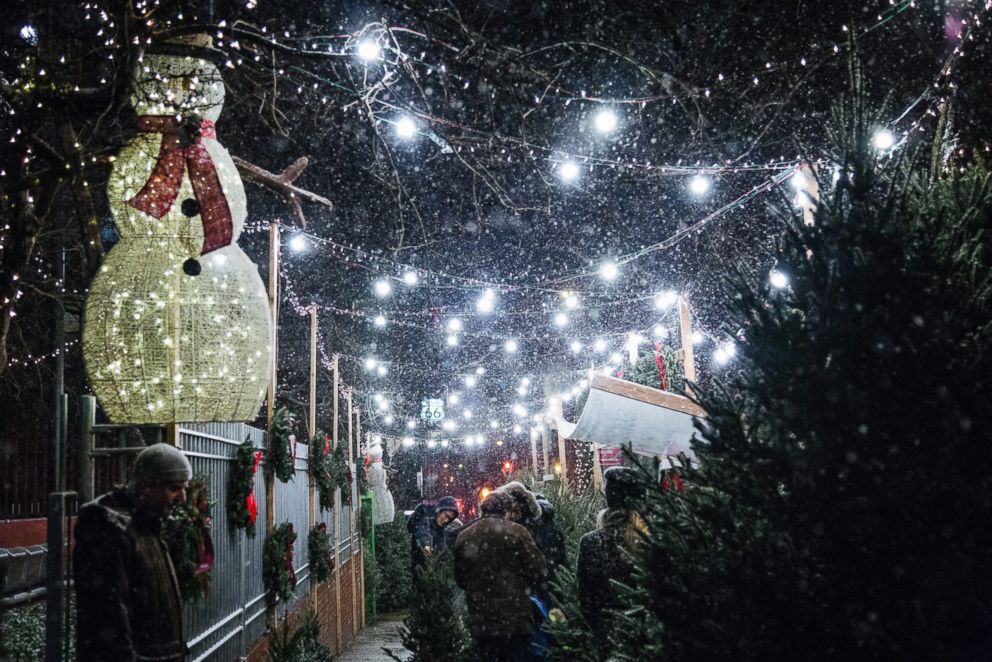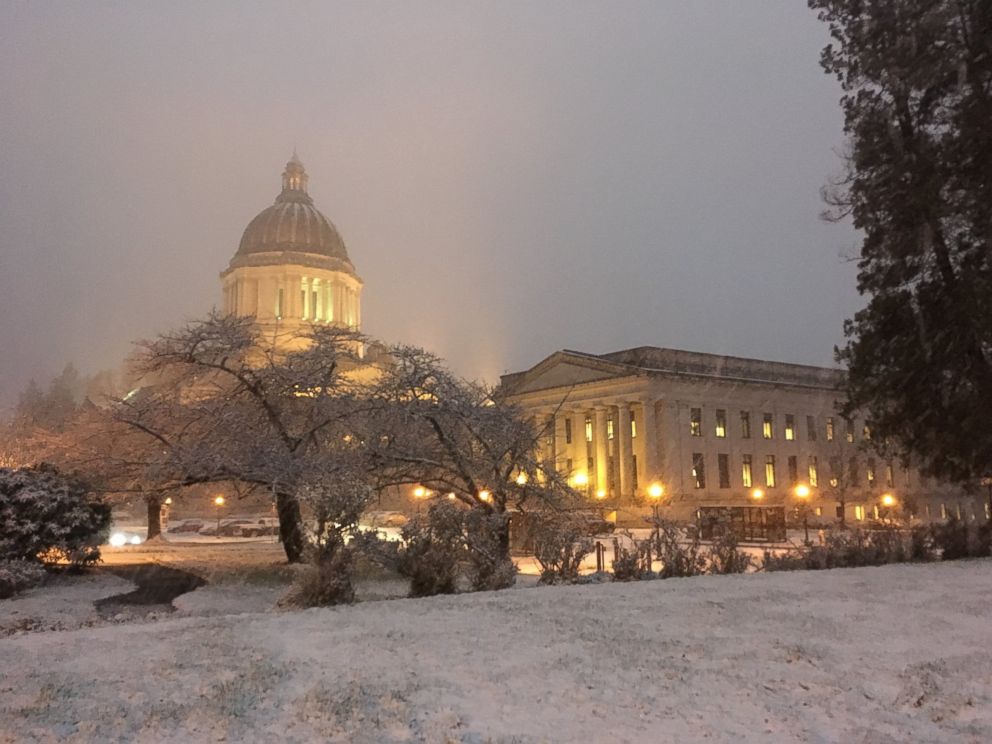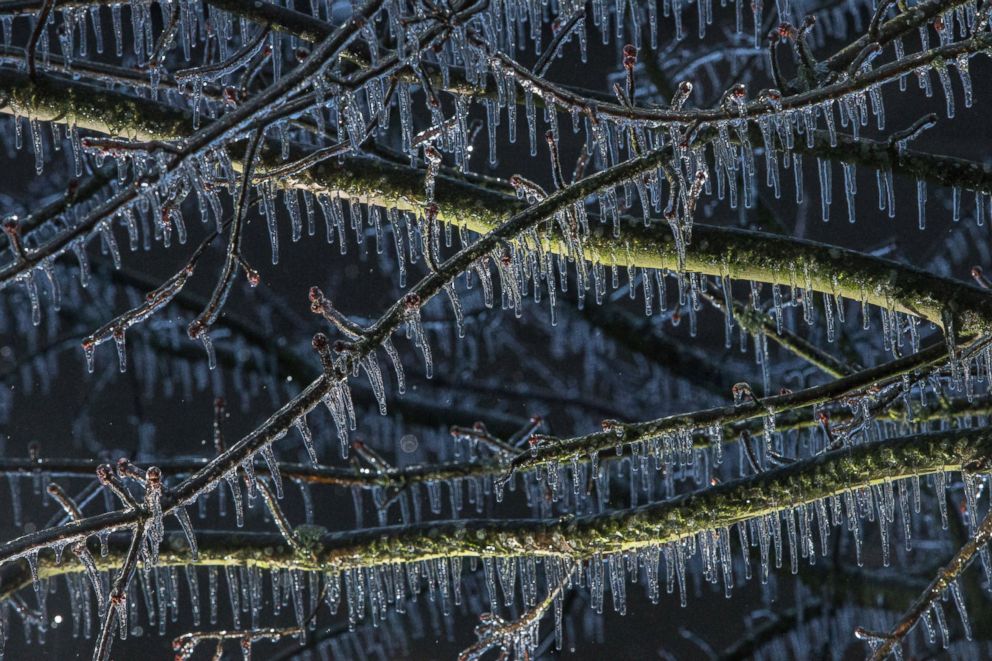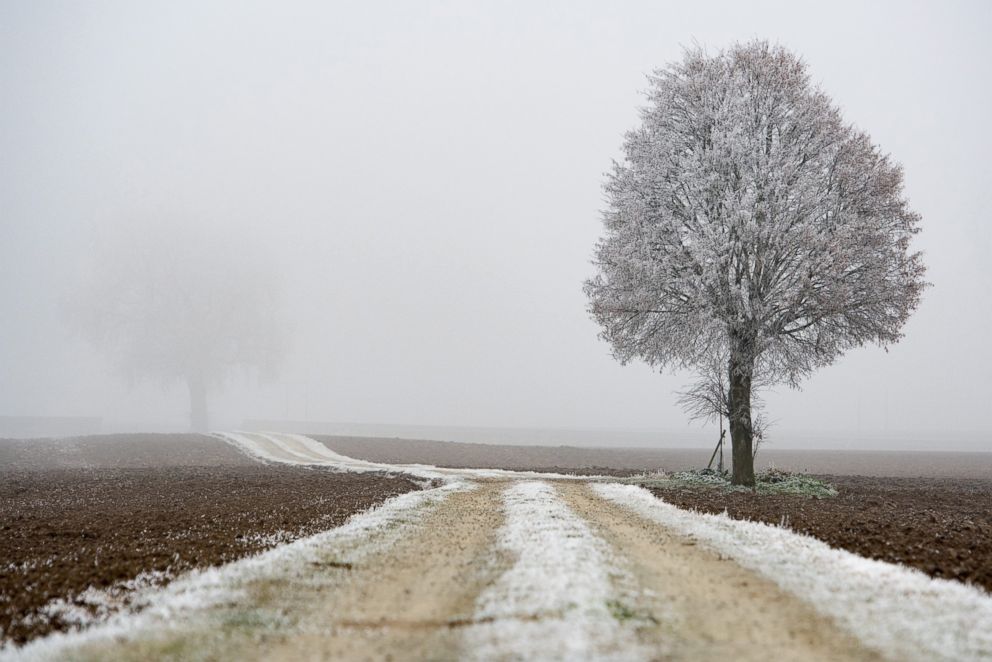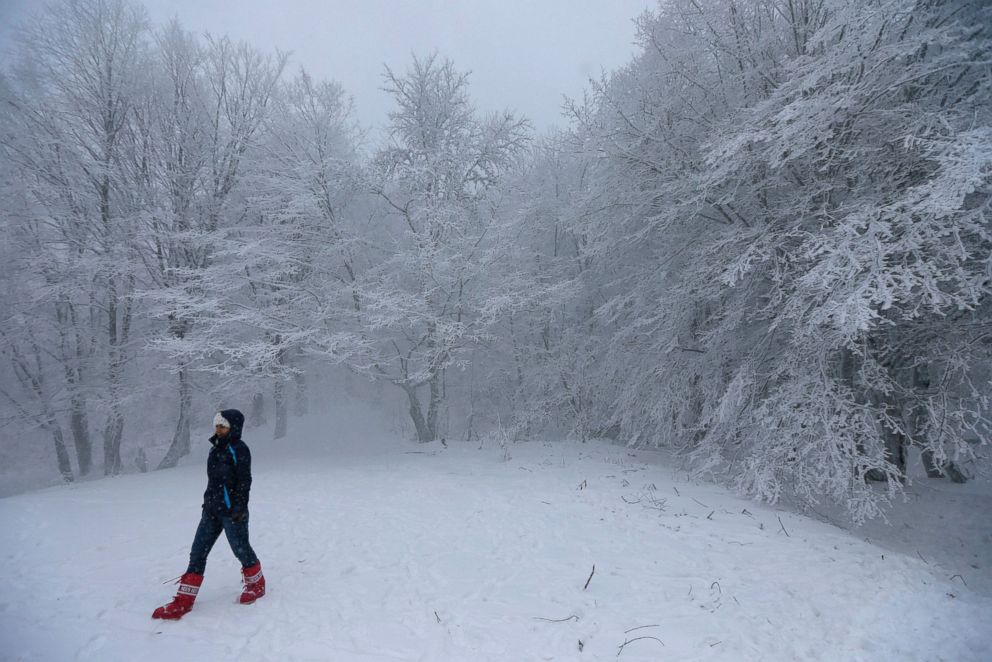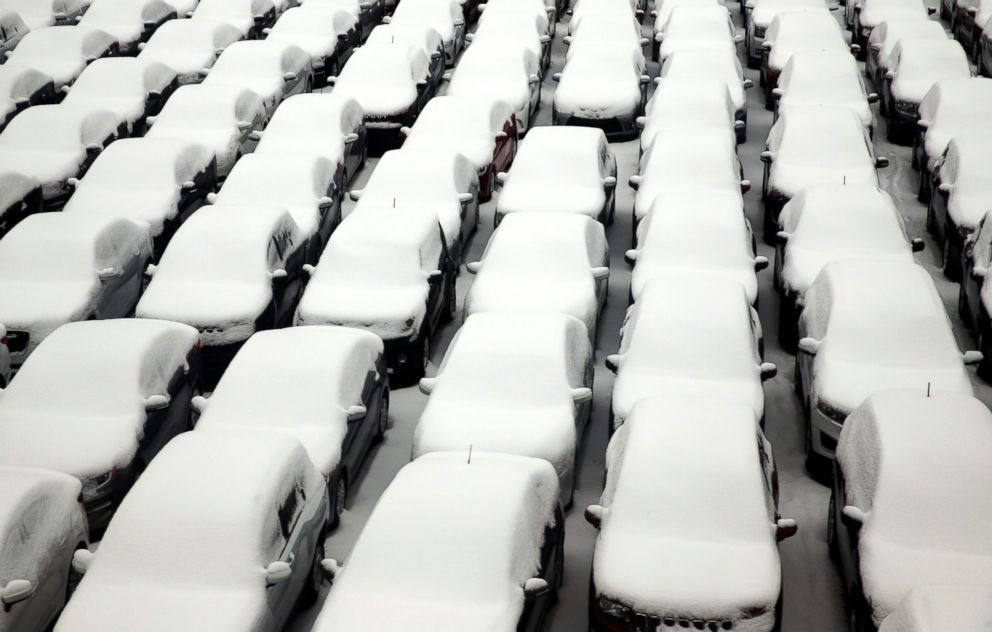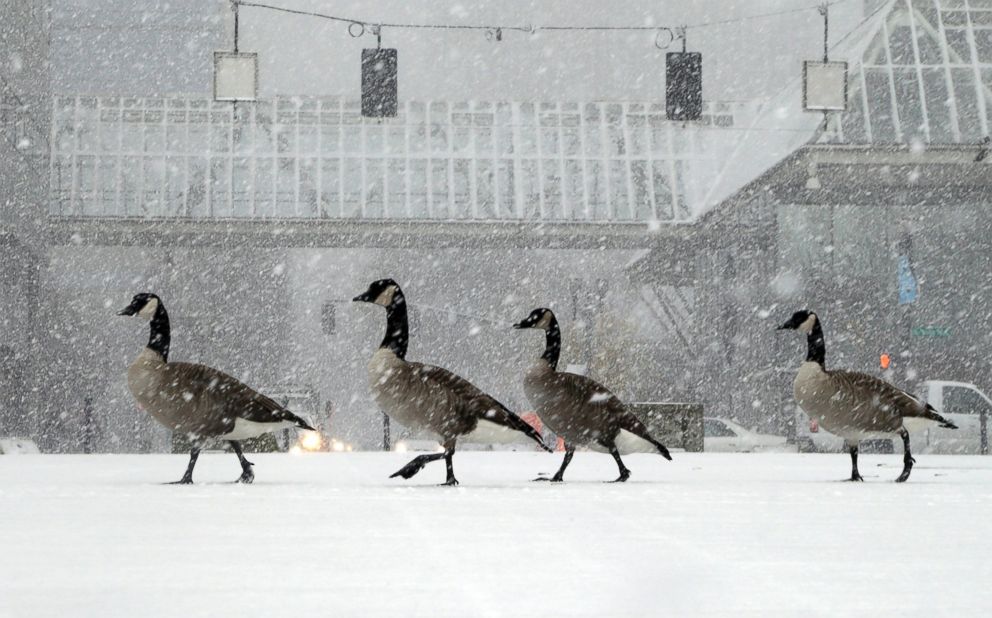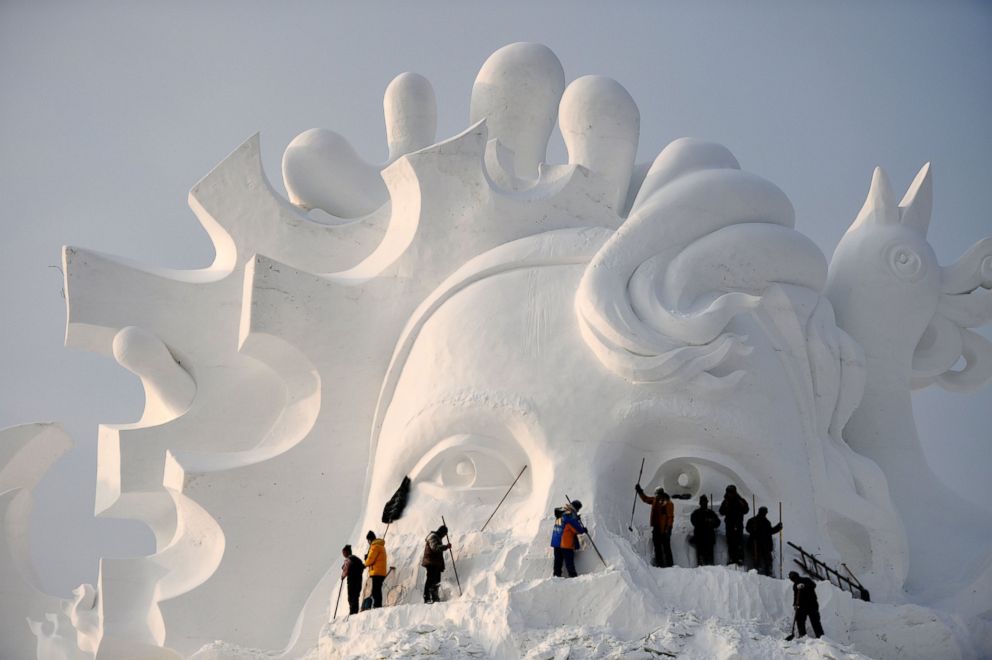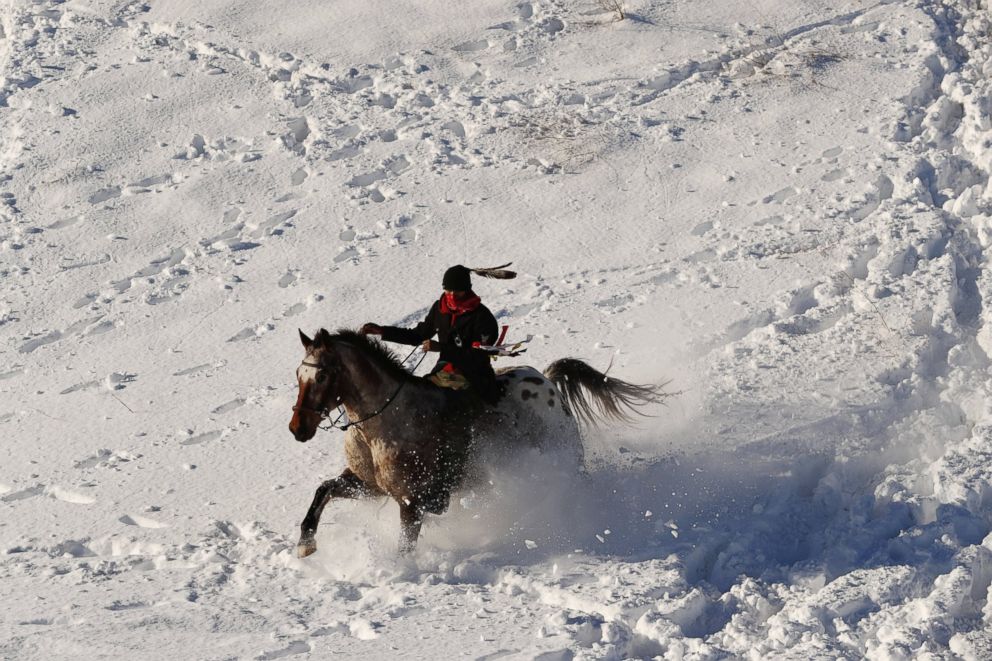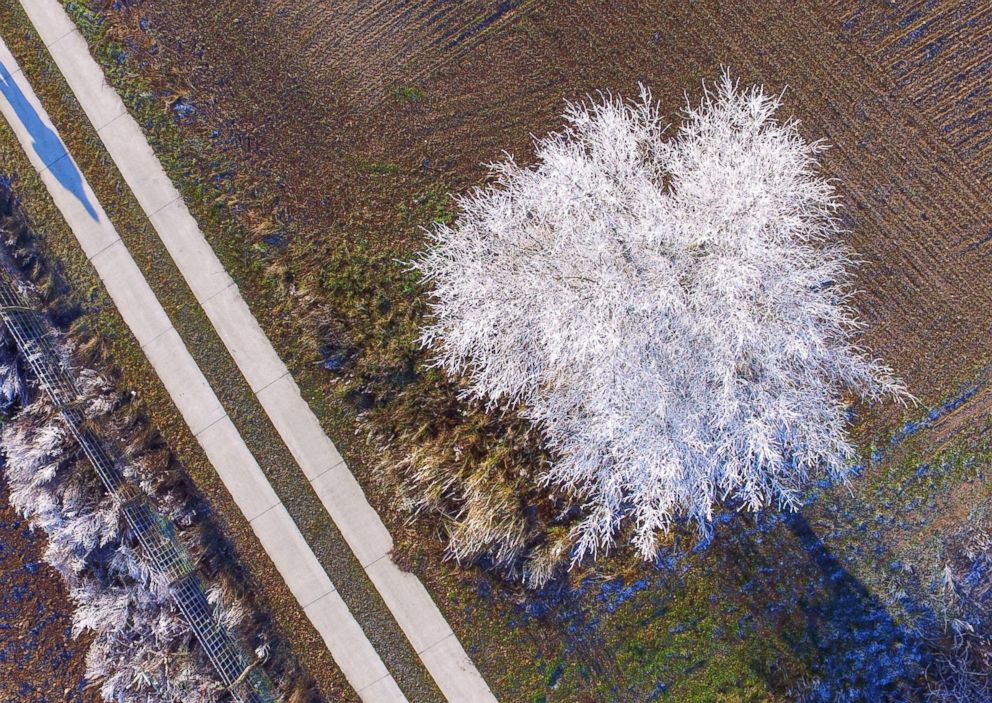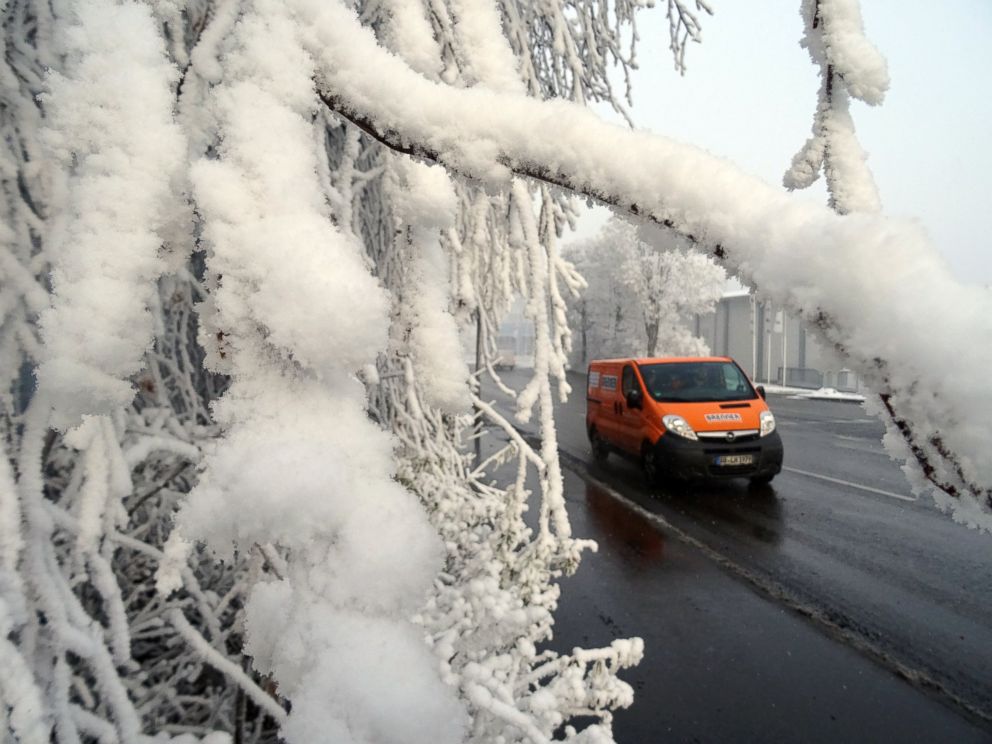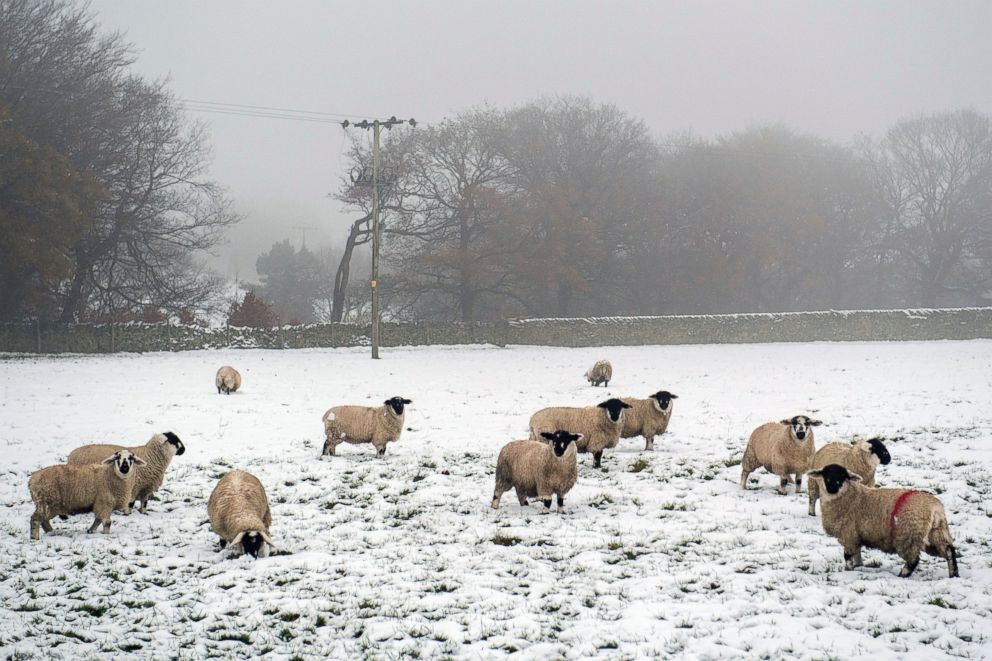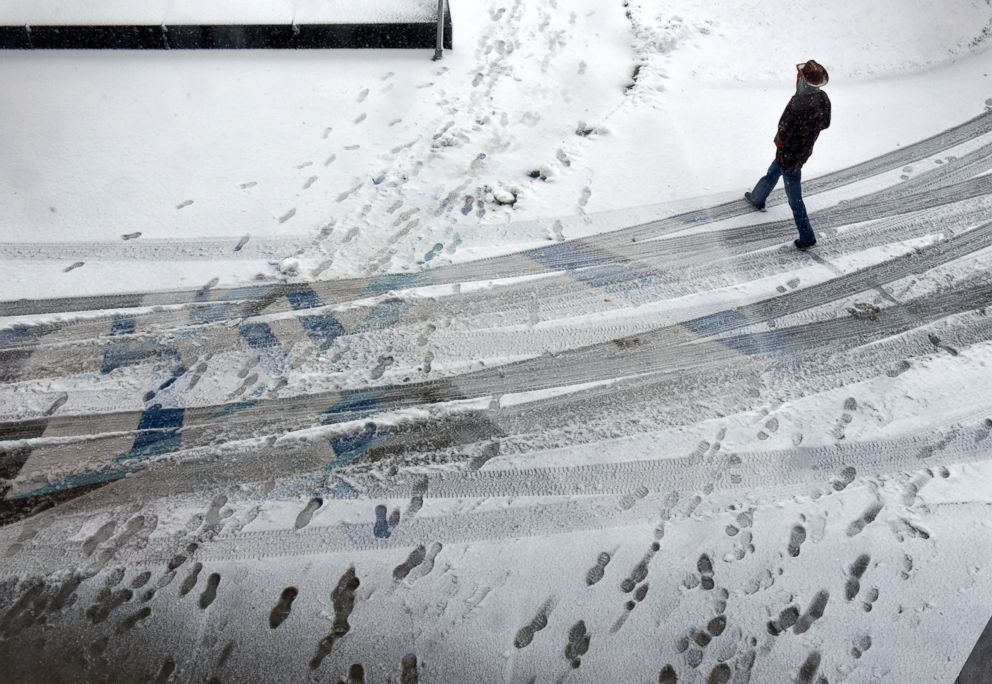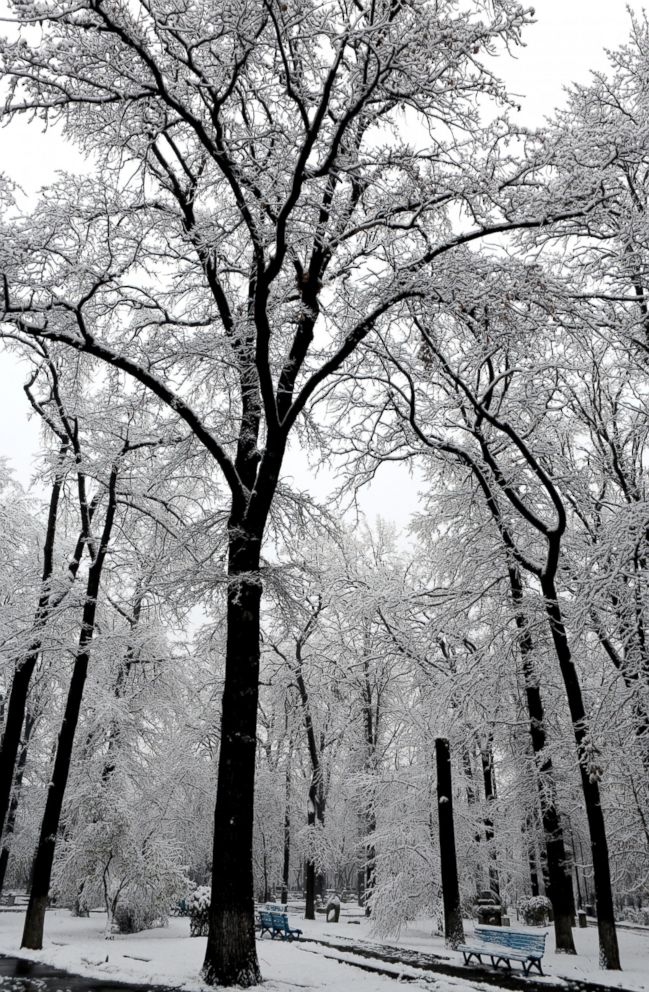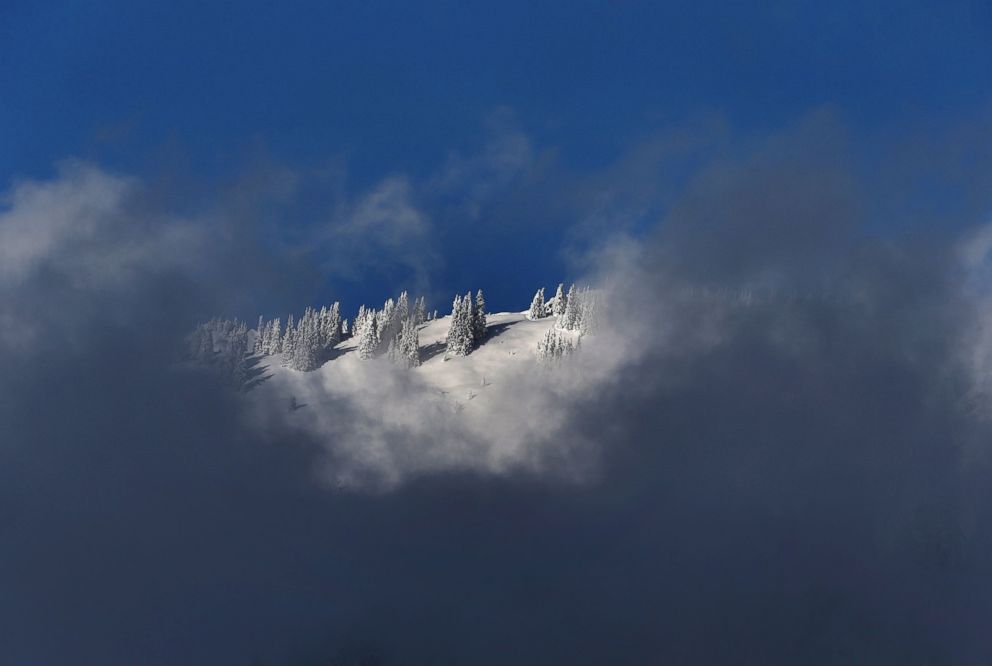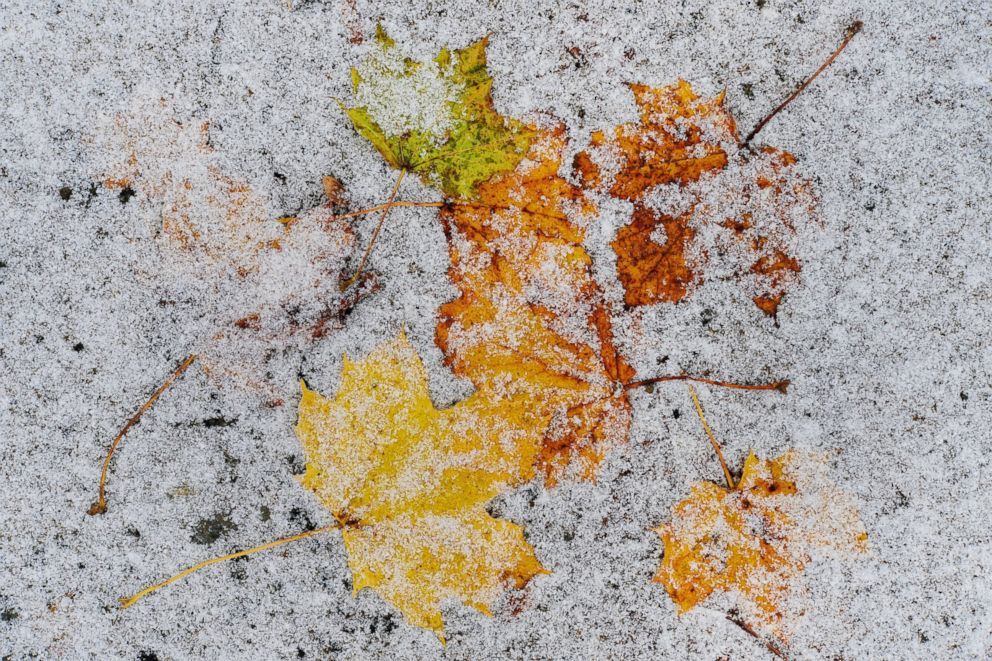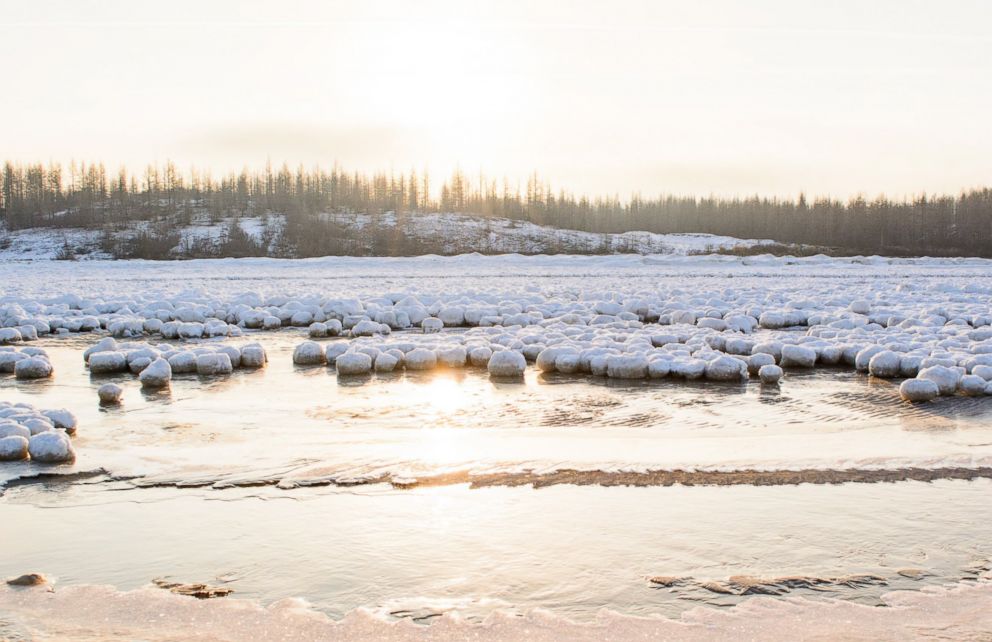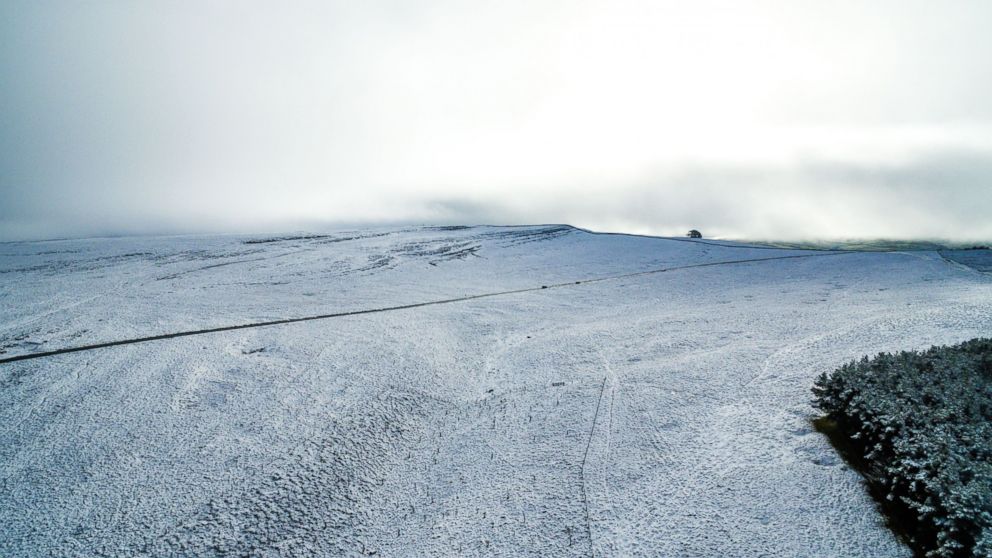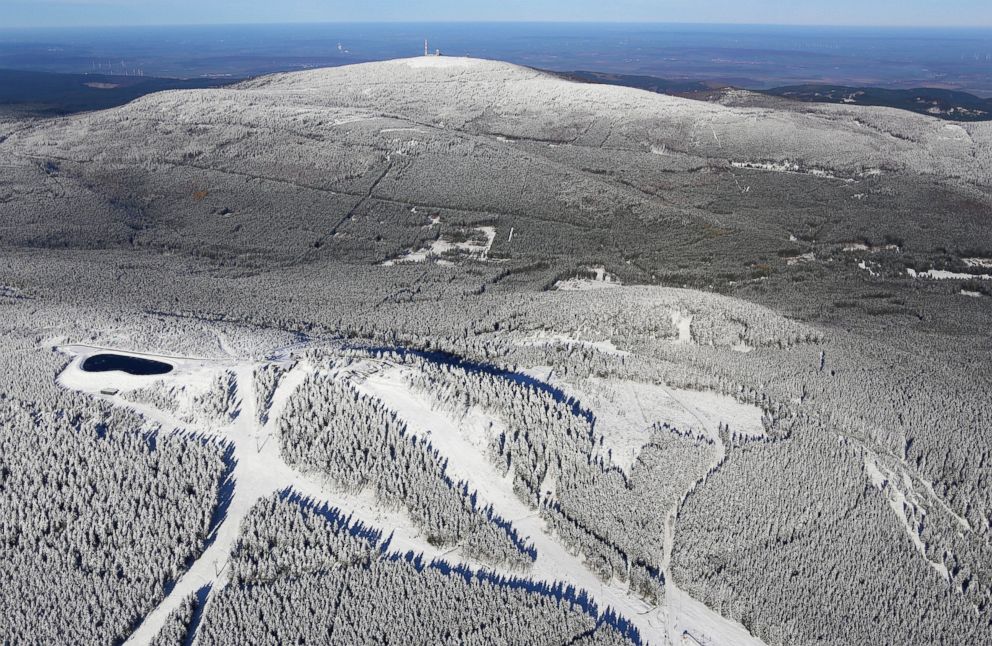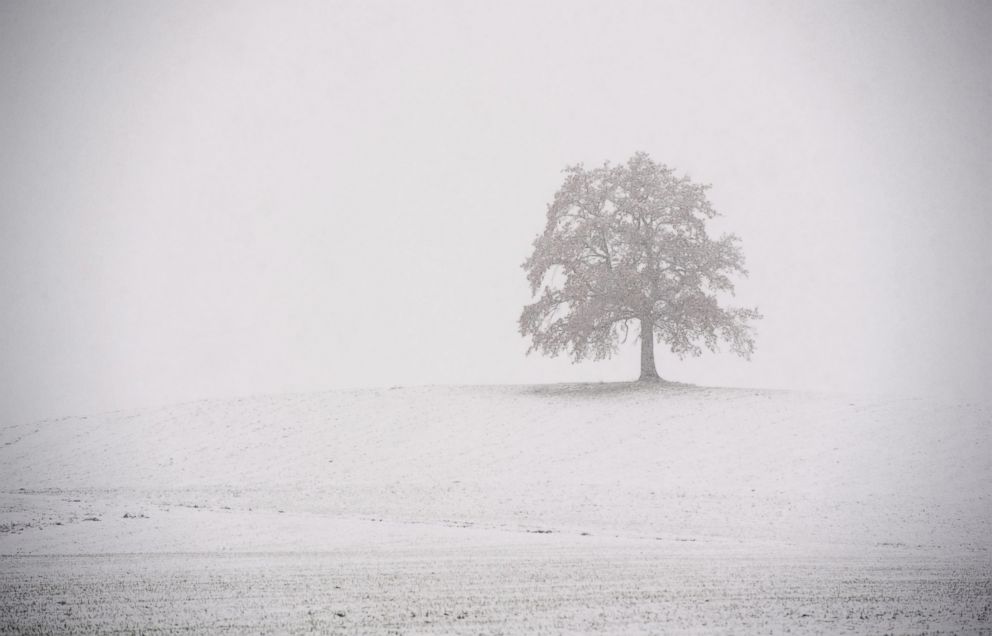Northeast braces for massive late winter storm
After a warm winter, a snowstorm is set to wreak havoc on parts of the country.
— -- After an unseasonably warm winter in parts of the Northeast, residents are bracing for a late-season wallop that could drop up to 2 feet of snow in parts of the region.
The National Weather Service has issued a blizzard warning for several parts of the Northeast, from the New Jersey Shore to Connecticut. A blizzard warning refers to sustained or frequent winds of 35 mph or higher, with considerable snowfall that will reduce visibility to a quarter of a mile or less for at least three hours.
Snowstorms in the Midwest are moving east, where they will merge with a coastal storm to form a major nor'easter.
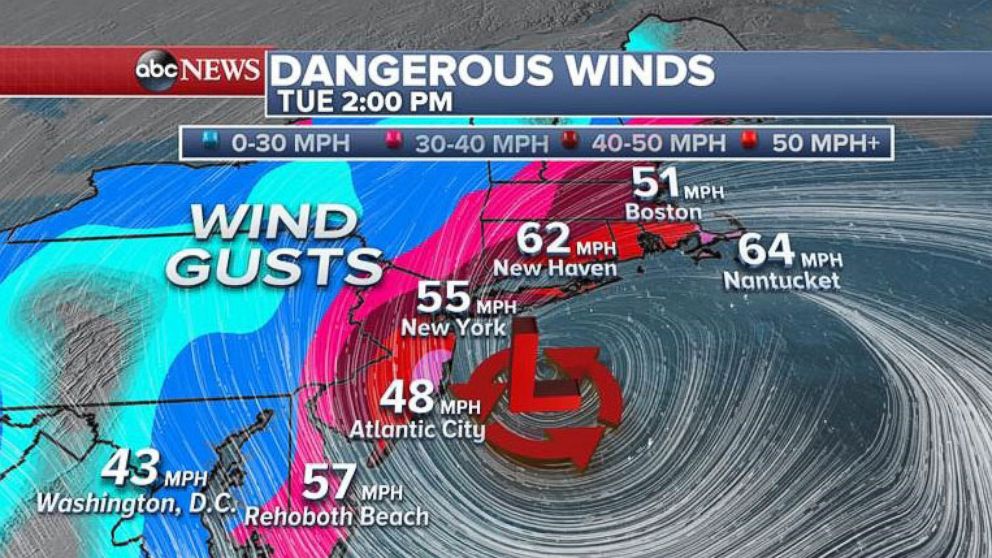
When will it start?
The snow is expected to start between 9 p.m. and 10 p.m. in Washington, D.C., and move northward, hitting the Philadelphia, New York and Boston areas overnight. The storm could bring record amounts of snowfall for several major cities in the Northeast.
Heavy snow and strong winds are expected for the entire Northeast. Coastal areas in the region should brace for blinding winds in addition to heavy snow and sleet.
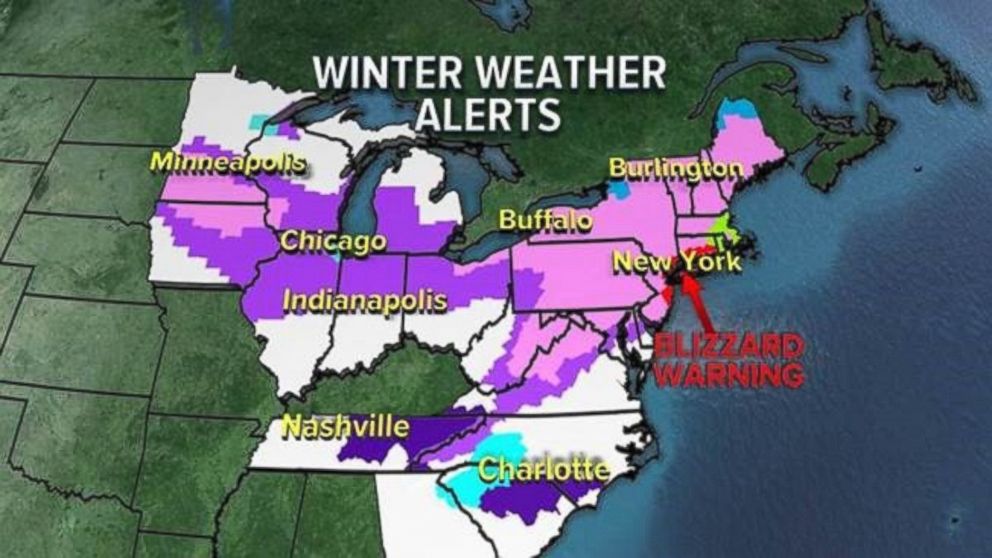
By Tuesday morning, snowfall rates could reach 2 to 3 inches per hour. Heavy rain, strong winds and coastal flooding will move into the New Jersey Shore by tomorrow morning.
A state of emergency has been declared for New York and Virginia. New York Mayor Bill de Blasio has also declared a state of emergency for the city's five boroughs.
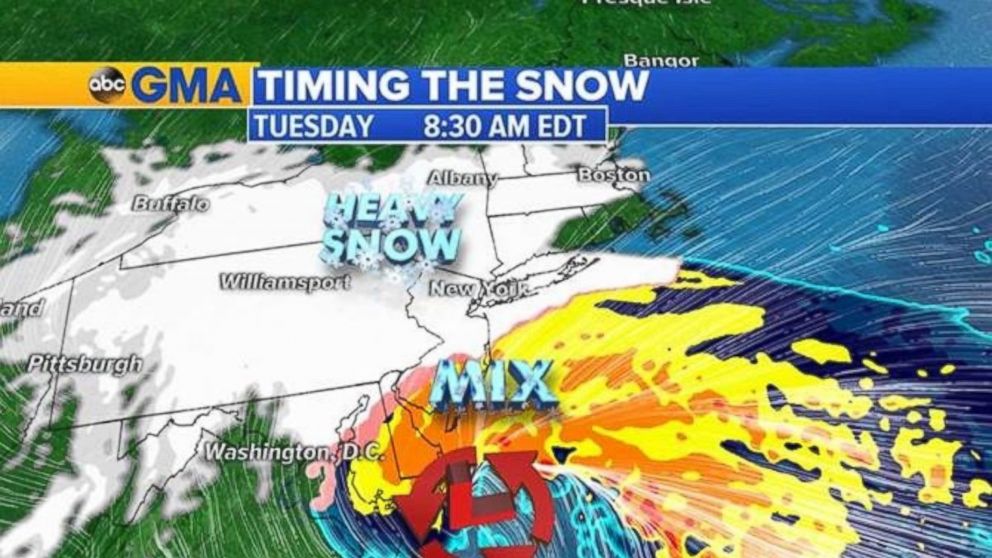
When will the snow end?
The storm should end at roughly 11 a.m. Tuesday in most cases, but huge waves, strong winds and coastal flooding will continue to pound Boston and coastal New England.
A heavy snowstorm is not common for this time of year. If New York City gets hit with at least 14 inches of snow, it will be the third-biggest snowstorm in the city's history for the month of March.
It also could be the biggest snowstorm of the season.
"This would certainly be the biggest snowstorm of the 2017 winter season in New York City," Faye Barthold, a National Weather Service meteorologist based on Long Island in New York, told The Associated Press.
Predicted snow accumulations
Washington, D.C.: 3 to 6 inches
Baltimore: 4 to 8 inches
Philadelphia: 6 to 10 inches
New York City: 12 to 18 inches; suburbs north and west could see up to 2 feet
Hartford, Connecticut: 16 to 20 inches; western suburbs could see up to 2 feet
Boston: 6 to 12 inches
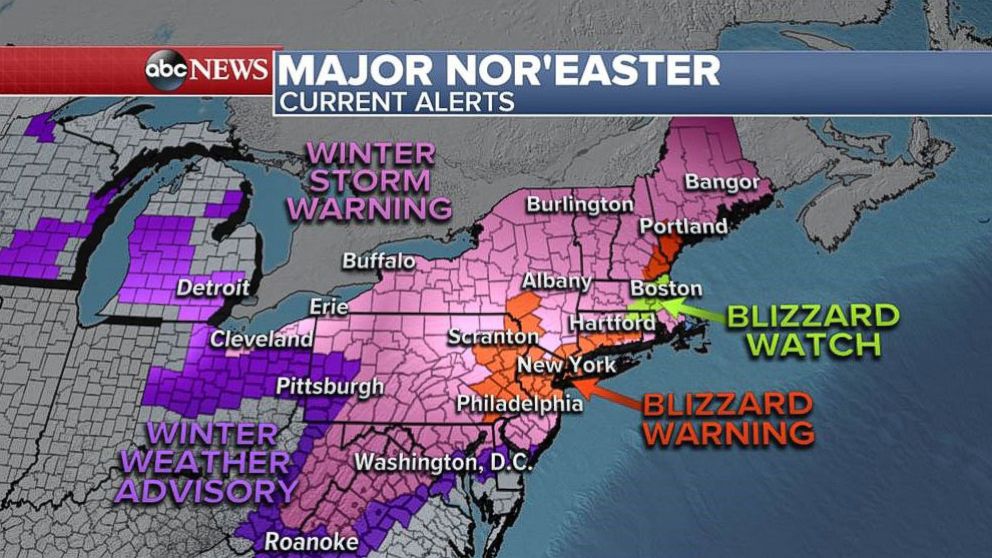
Residents at higher elevations may be shoveling 20 inches to 2 feet of snow in the morning, while snow accumulations may be less in coastal cities because of sleet and rain mixing throughout the day.
How the storm will affect residents in the Northeast
Schools have been canceled for Tuesday in New York City, Philadelphia and Boston. New York City and Philadelphia are under a blizzard warning, and a blizzard watch has been issued for the Boston area.
Winter Wonderland
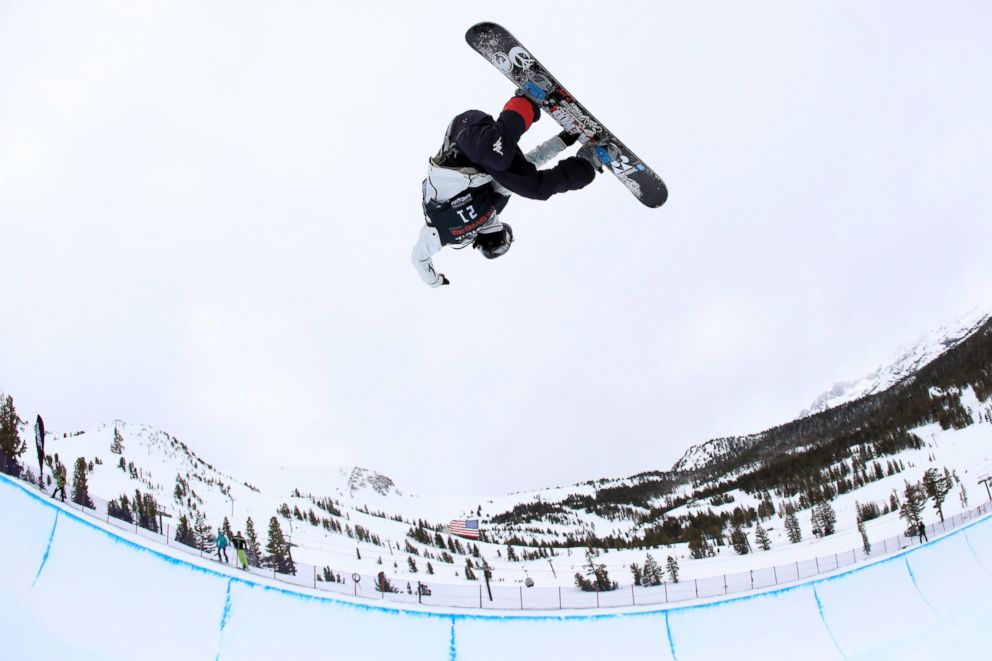
The impact of the storm on travelers could be massive, especially for this time of year.
In New York City, all aboveground subway service will be suspended as of 4 a.m., and a decision on the rest of the subway system will be made by 4:30 a.m., and Gov. Andrew Cuomo expects Long Island Rail Road and Metro-North service to be significantly affected as well.
The governor declared a state of emergency beginning at midnight Tuesday.
A travel ban will begin in Connecticut at 5 a.m. on Tuesday, Gov. Dan Malloy announced on Facebook.
American Airlines has canceled all flights out of La Guardia and John F. Kennedy International airports on Tuesday. The airline has also canceled all flights out of Washington scheduled before 8 a.m. Tuesday and all flights out of Philadelphia scheduled before 5 p.m. Tuesday. In Boston, American Airlines flights after 8 a.m. Tuesday have been canceled, and normal operations are expected to resume Wednesday morning.
Delta canceled more than 900 flights in anticipation of the storm, with about 800 of those flights originating near New York, Washington and Boston, as well as from smaller airports in the Northeast.
Delta expects to resume operations with a reduced schedule on Tuesday night. Delta flight schedules should return to normal by Wednesday, pending facility evaluation and the resumption of mass transit in New York.
Cancellation details for other major airlines were not immediately available.
How the storm will affect other states
Meanwhile, a blanket of white has been dumped on the Great Plains. Two men died in Wisconsin removing snow, officials said.
Up to 10 inches of snow fell from the Dakotas to Iowa yesterday and overnight.
In the Midwest, snow made for a messy commute Monday morning, resulting in heavy traffic on I-43 in Wisconsin because of multiple accidents.
Chicago is expected to get half a foot of snow, but other parts of Illinois and some parts of Wisconsin got a mere 2 to 5 inches. Winter weather advisories are in place from the Midwest to the Great Lakes and will expire as the storm moves east.
Snow and freezing temperatures also hit the South over the weekend, and Arkansas received 4 to 5 inches of snow.
In parts of Tennessee, 1 to 3 inches of snow fell, causing travel delays and auto accidents throughout the state.
The weather has vacillated widely in the Southeast in recent weeks. Warm streaks throughout February caused plants to bloom early this year, but they were then covered in ice and snow as temperatures plummeted.
ABC News' Whitney Lloyd contributed to this report.
